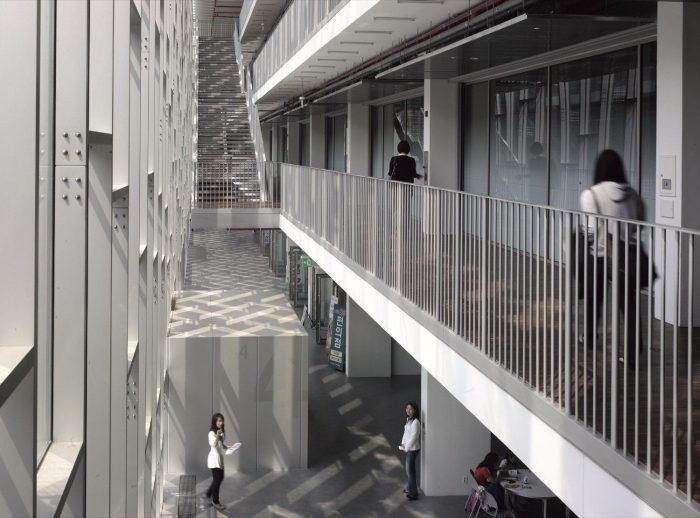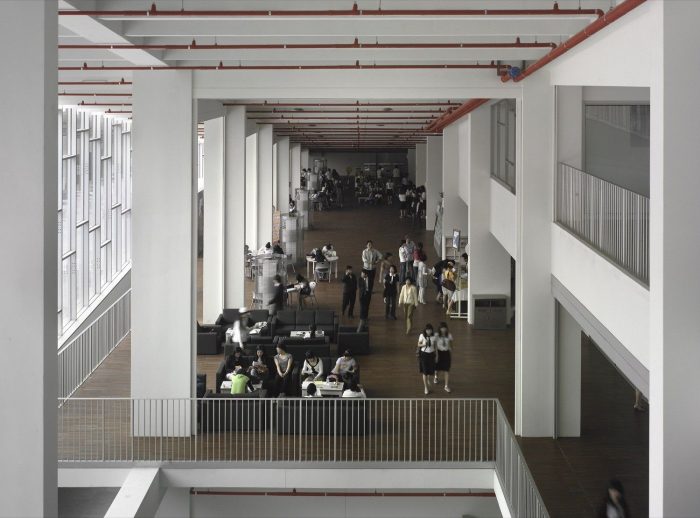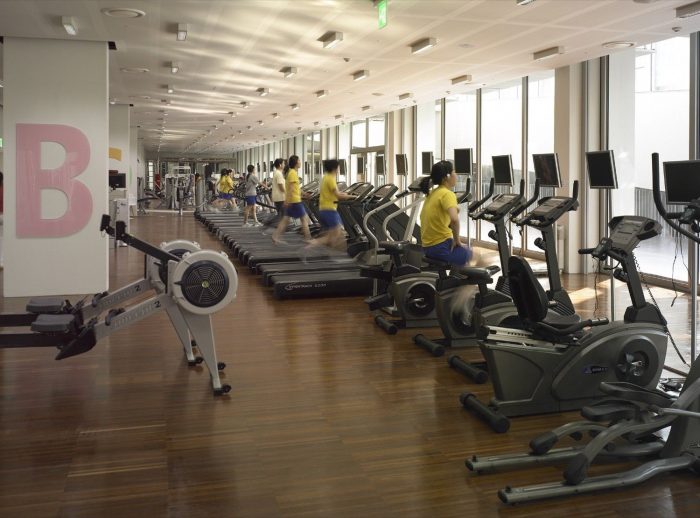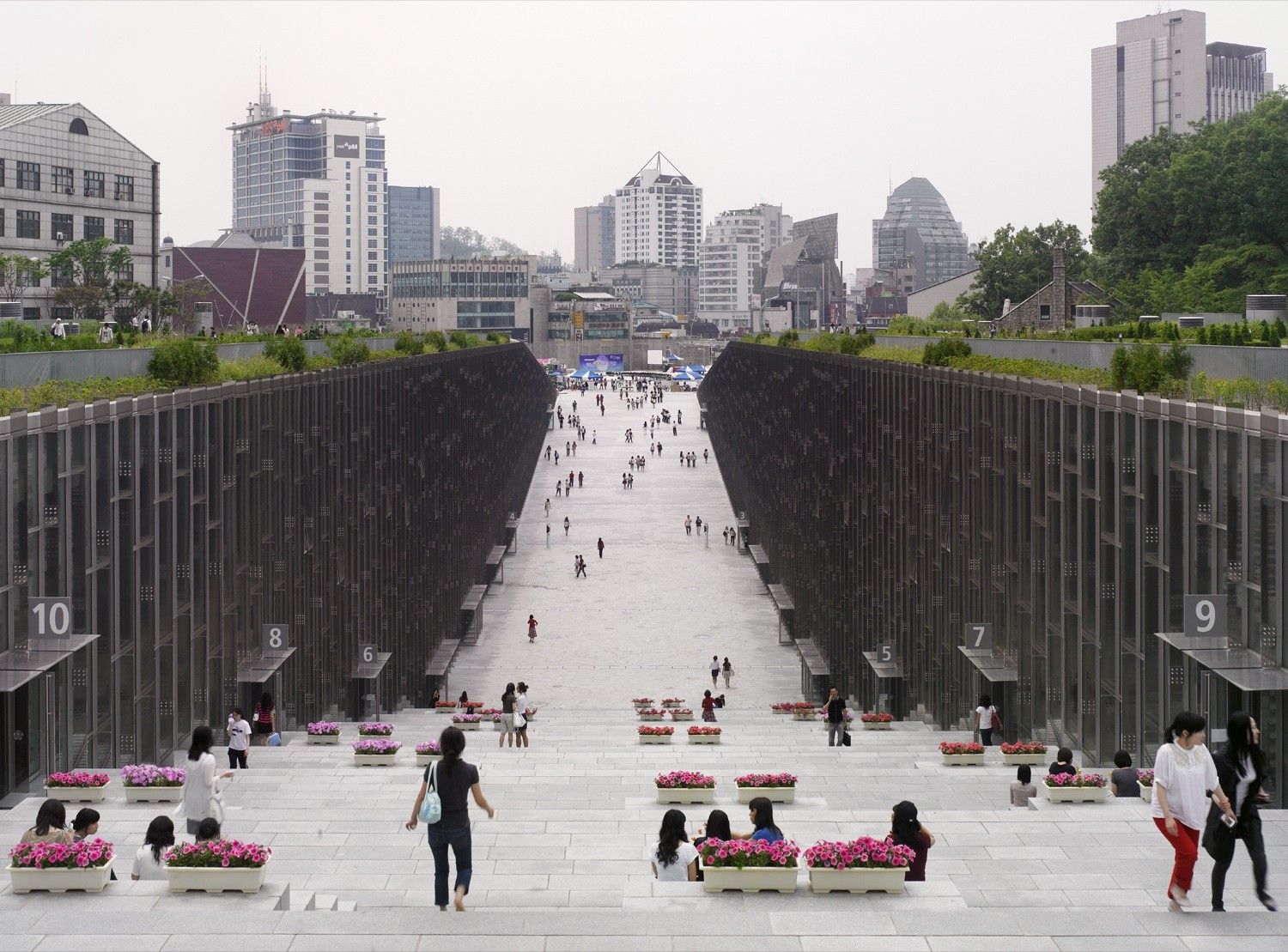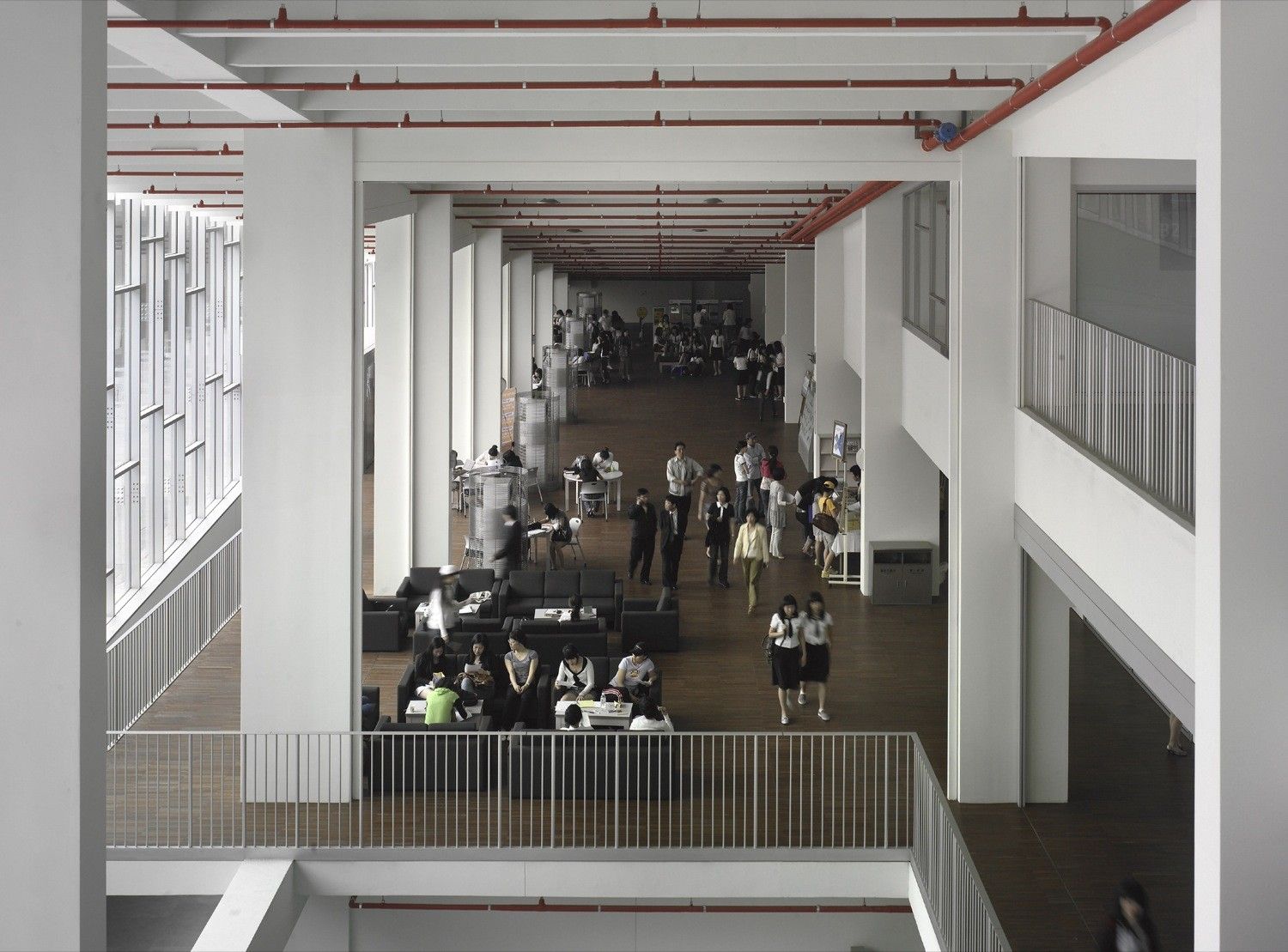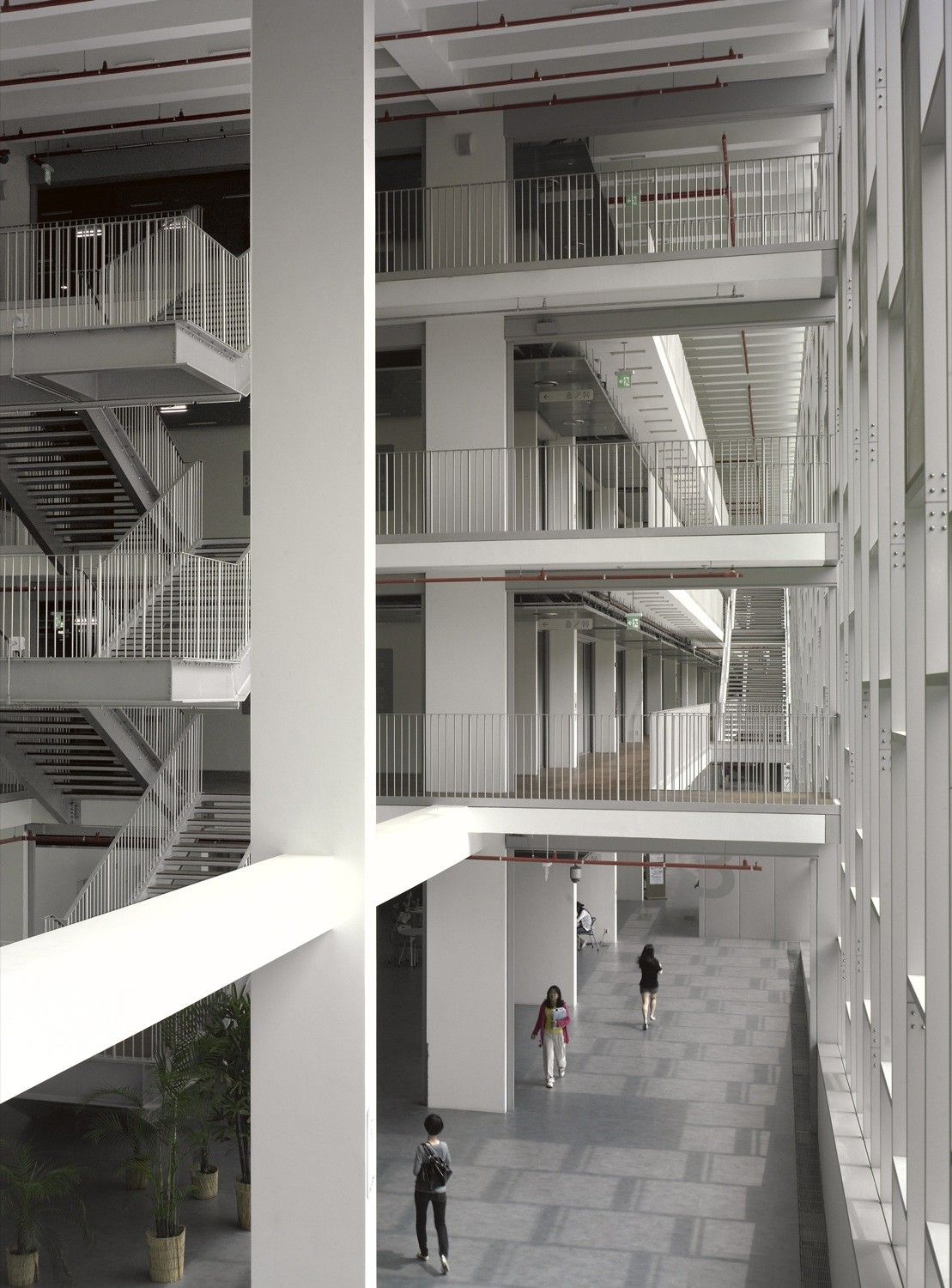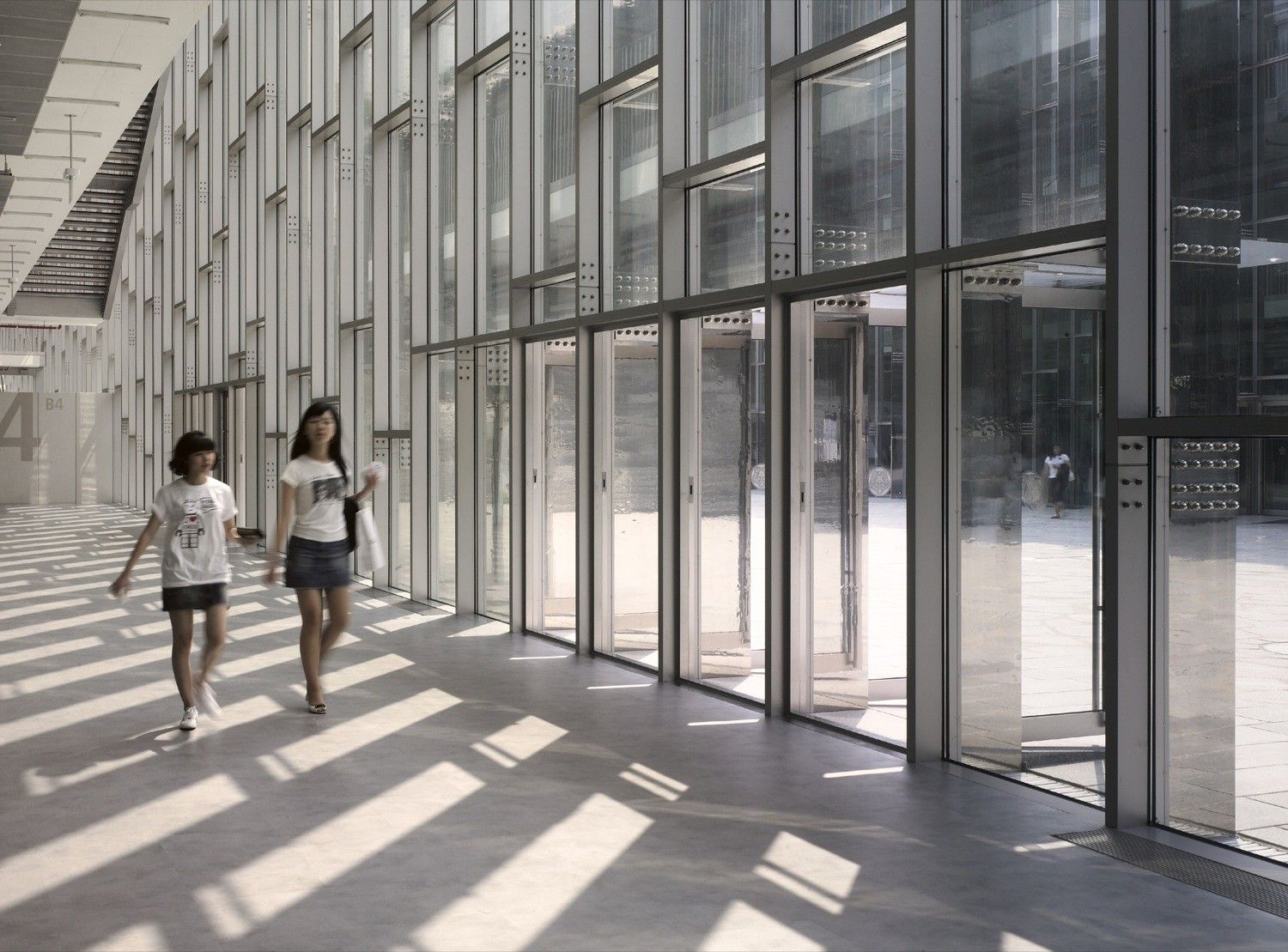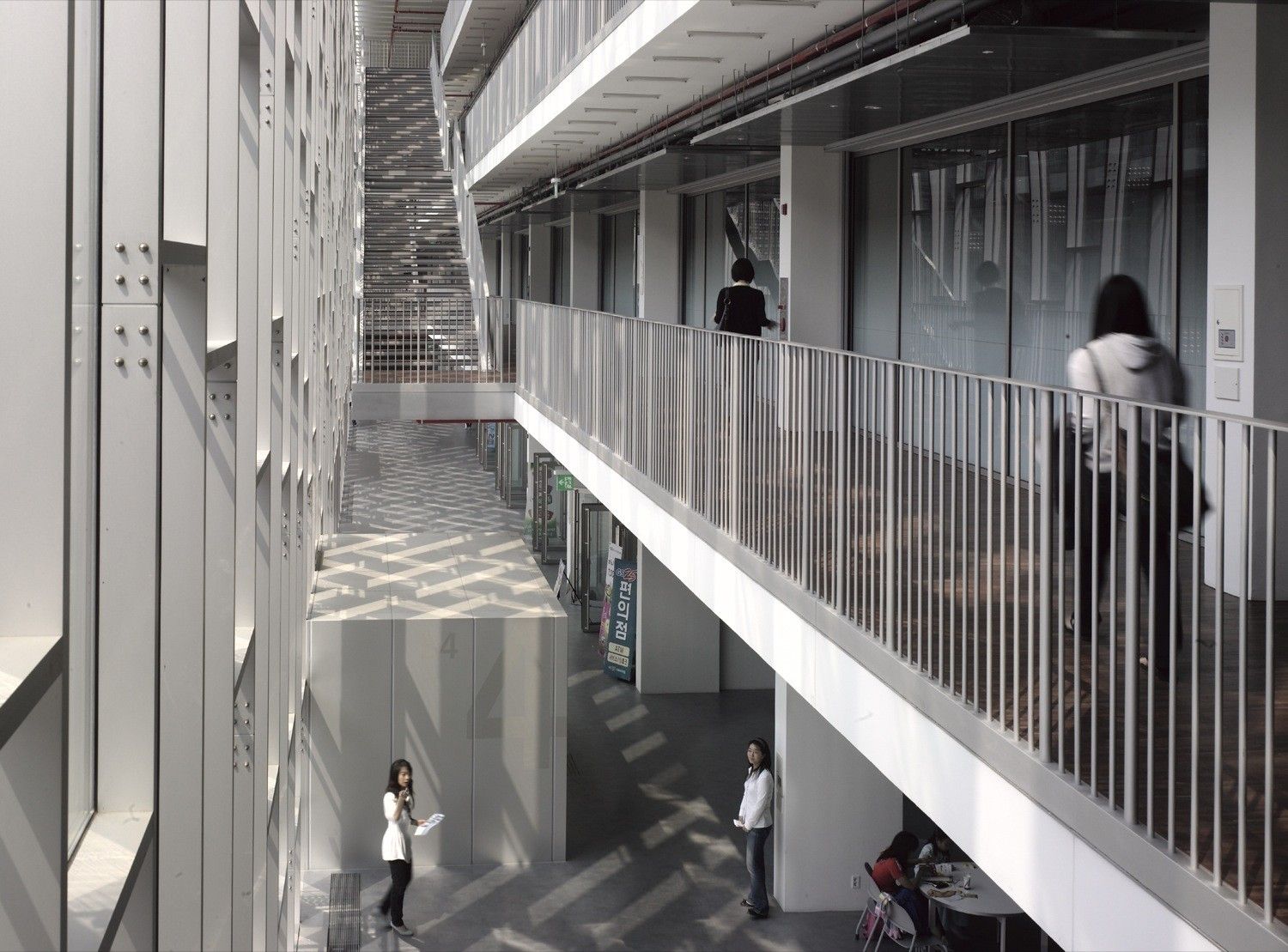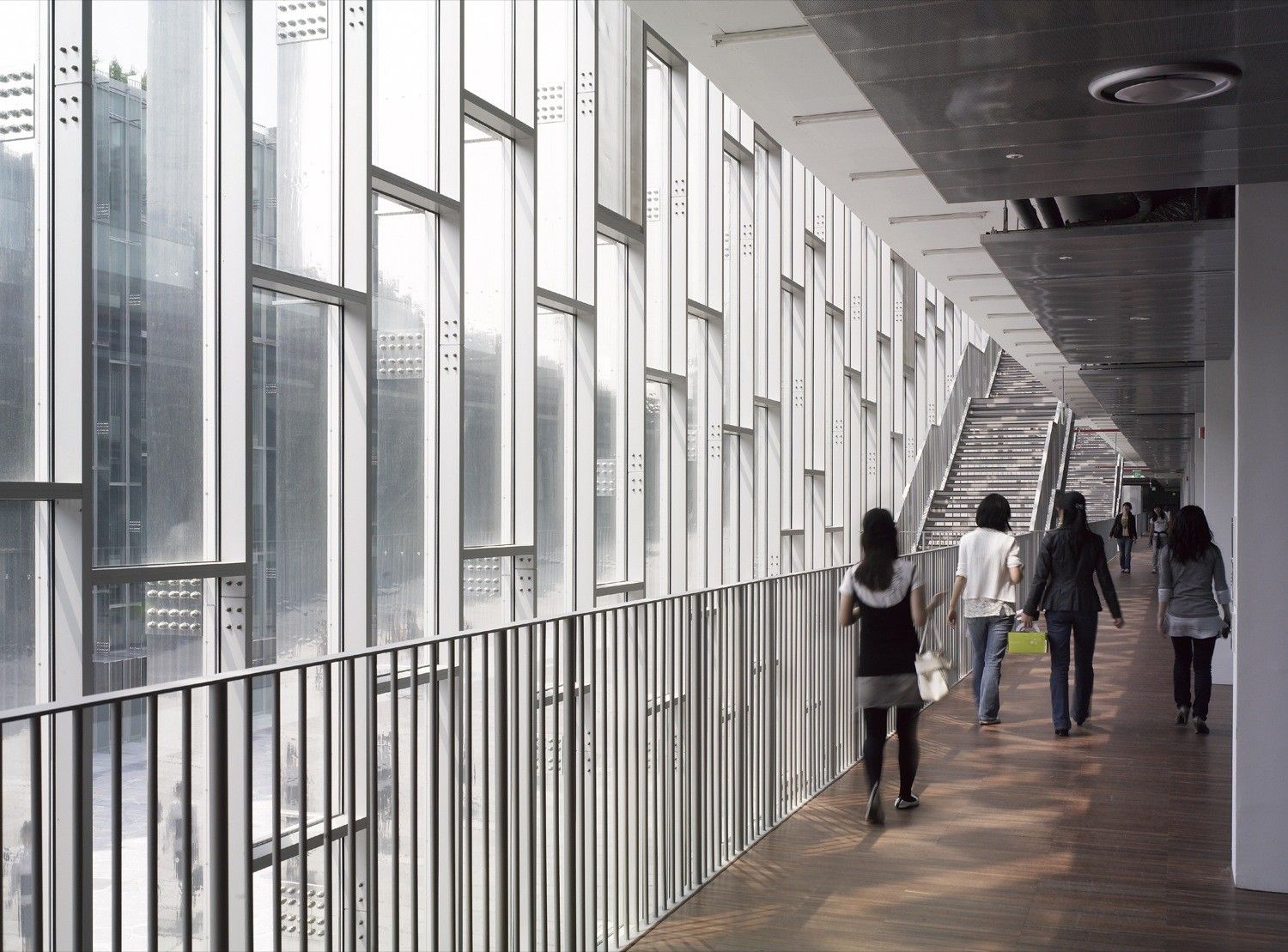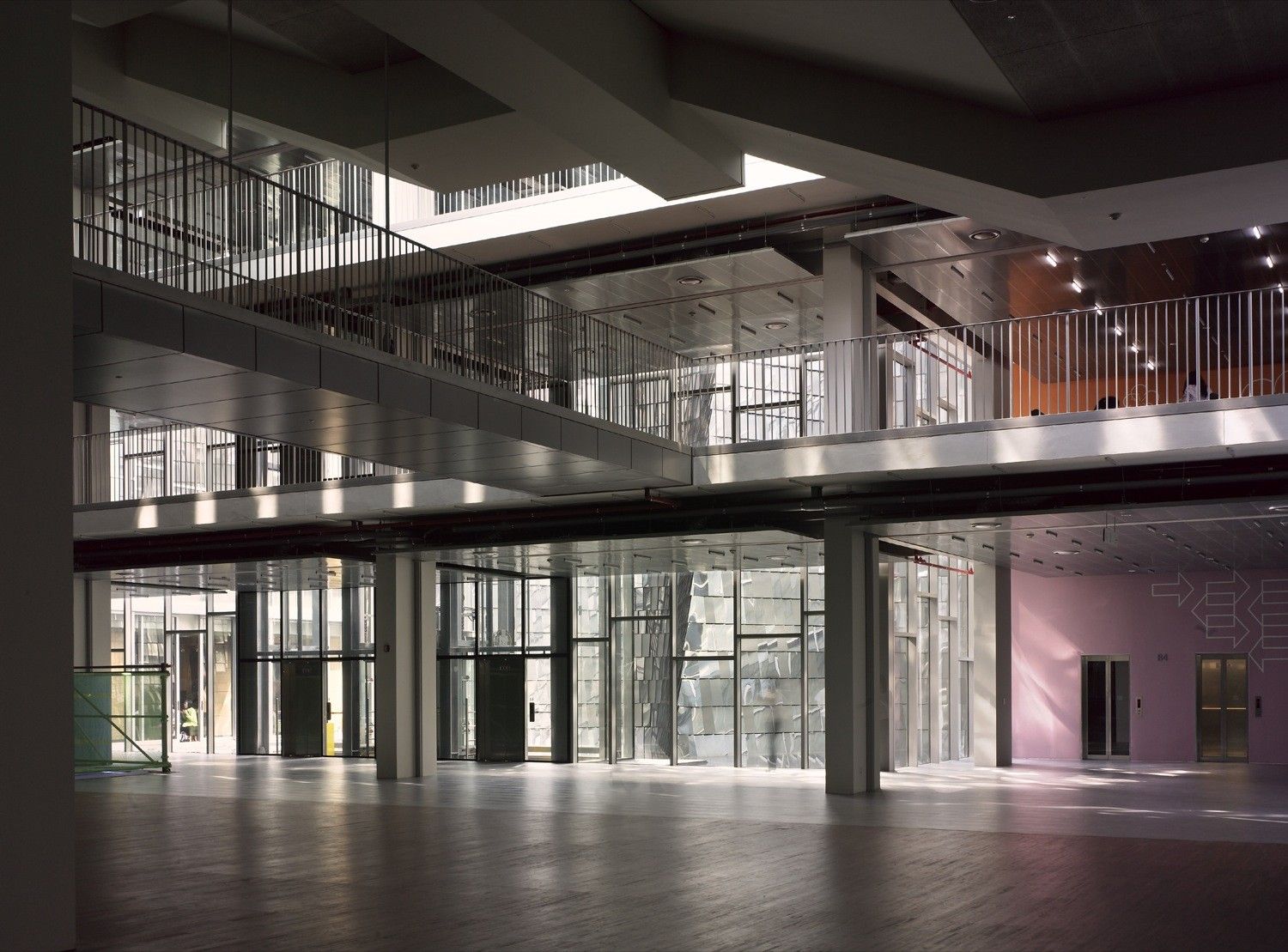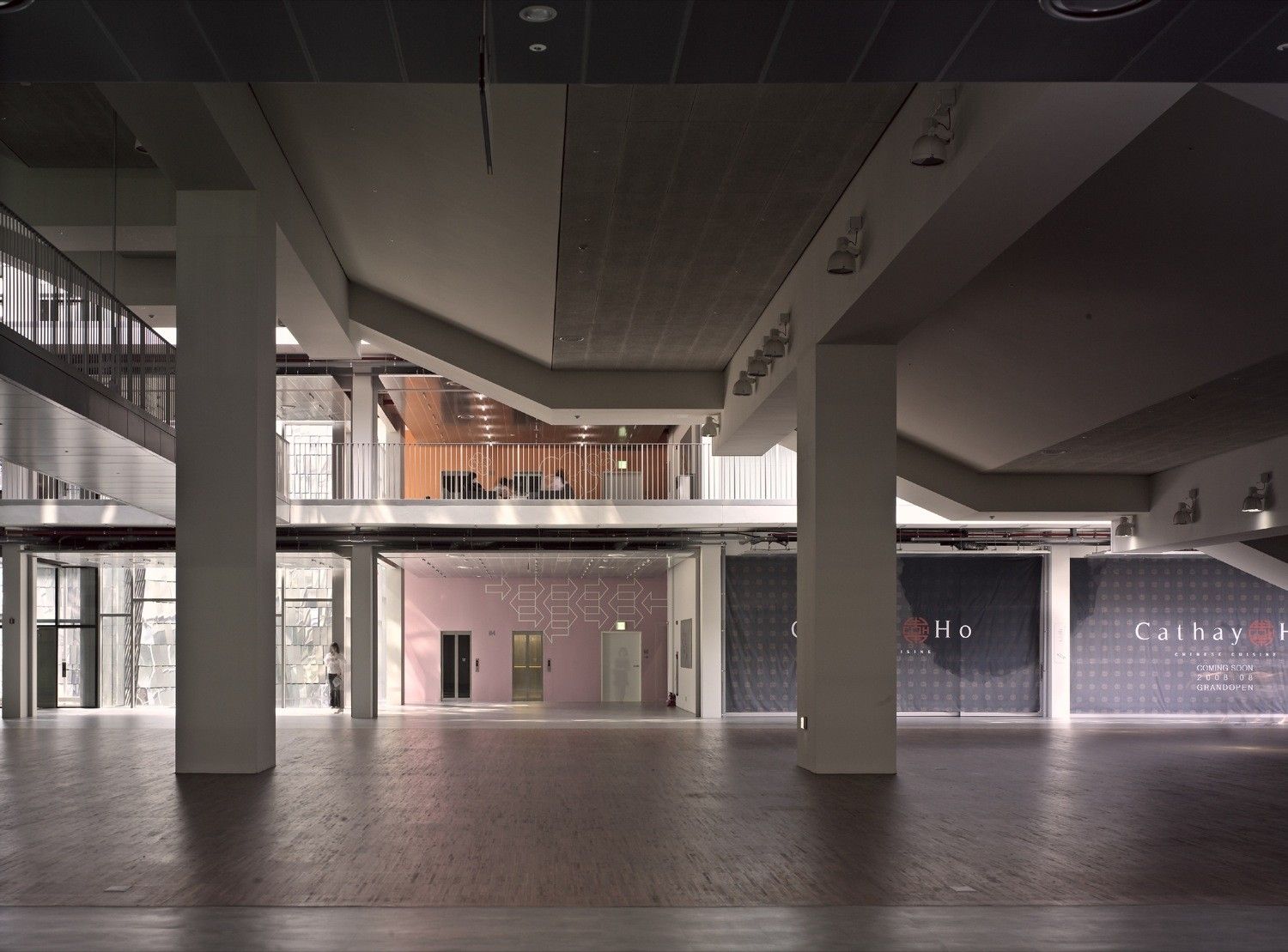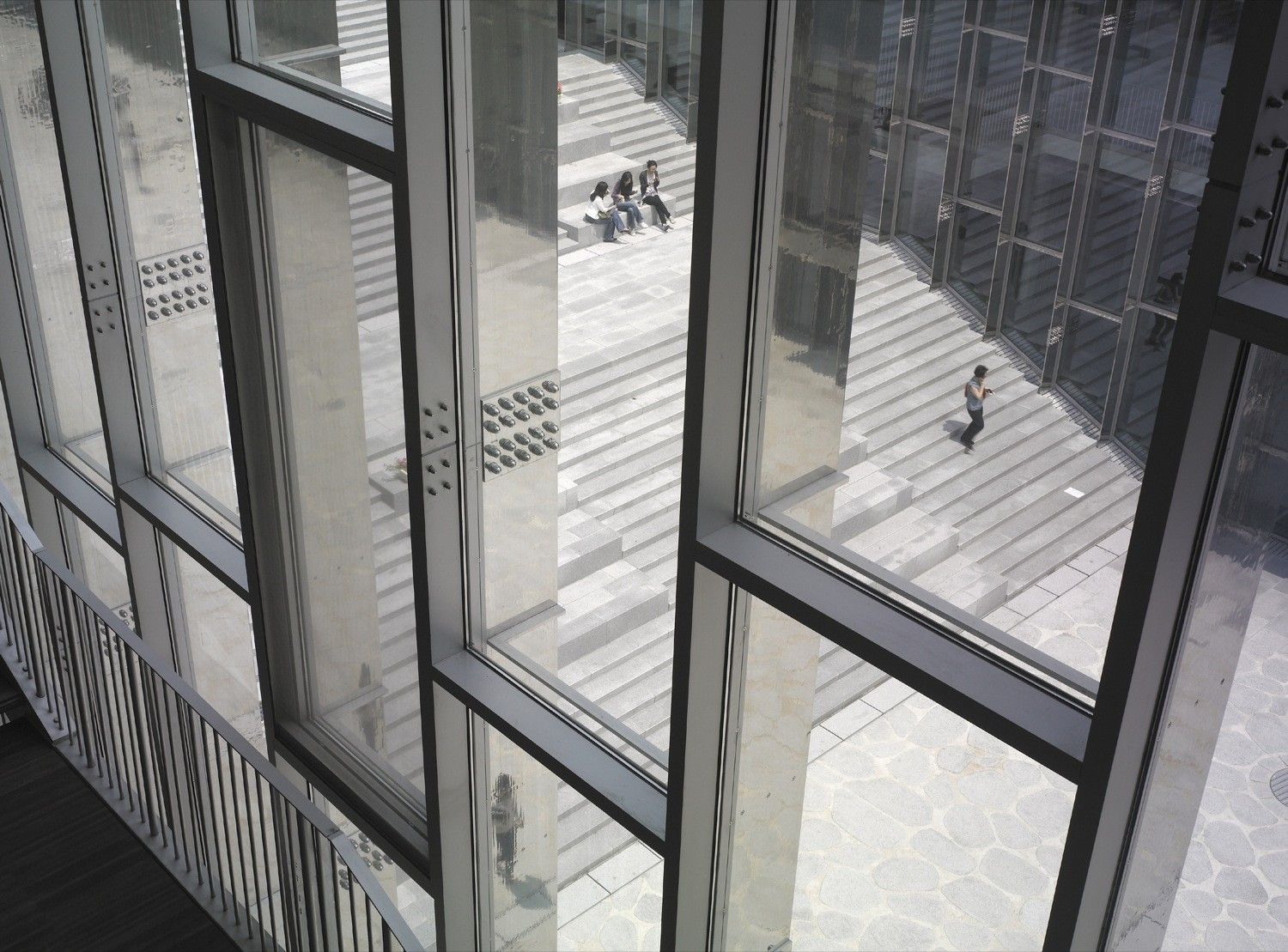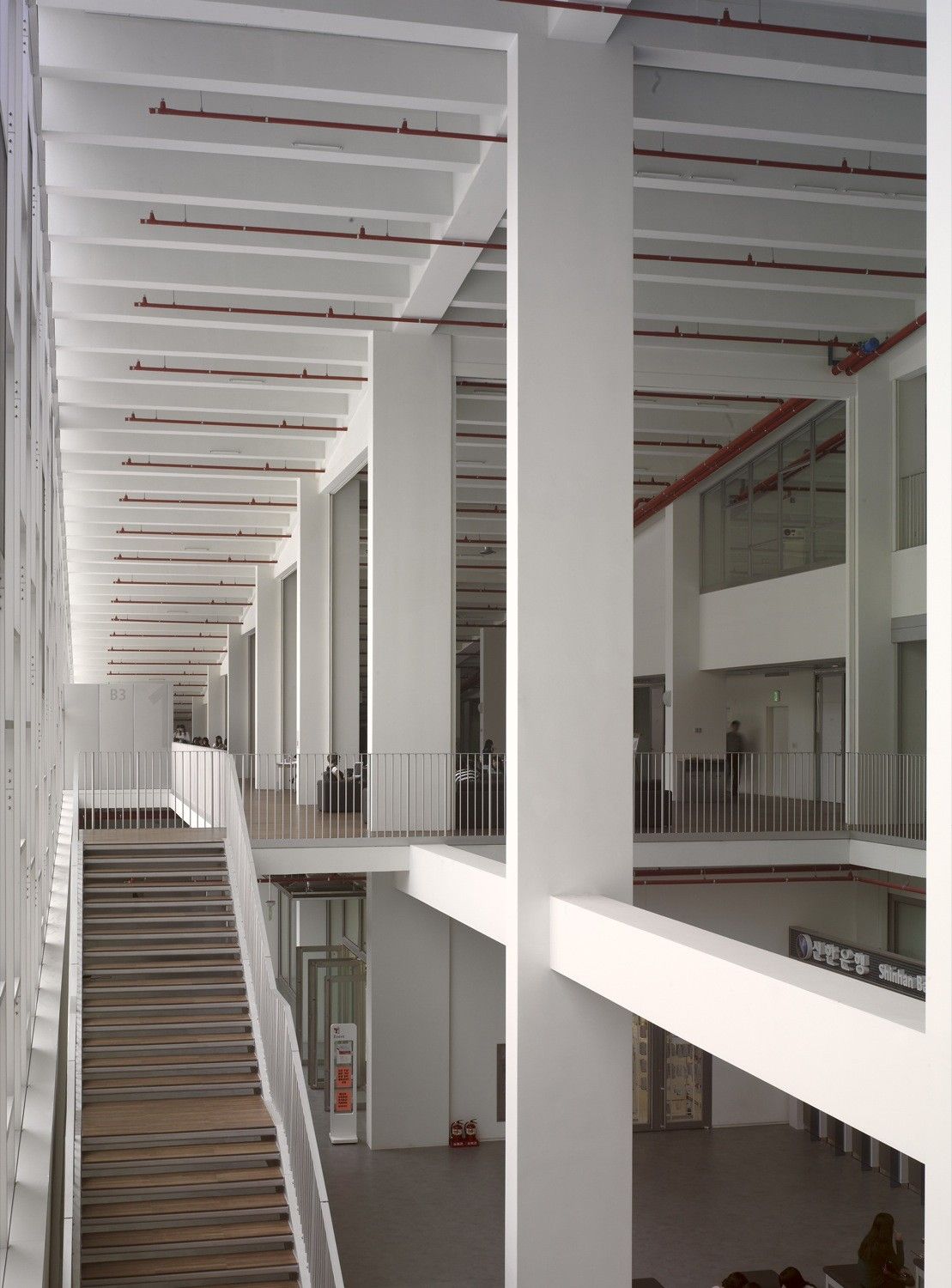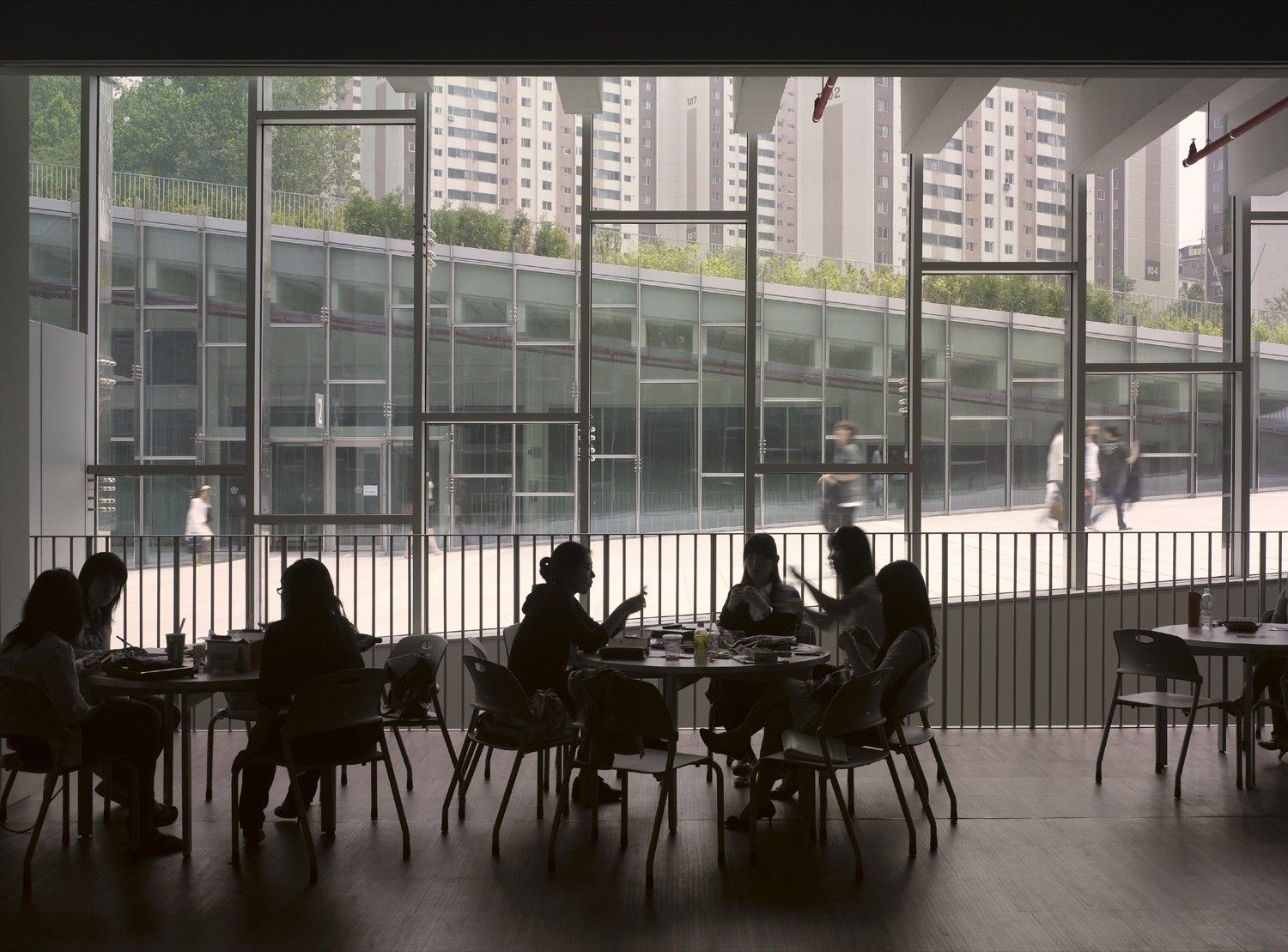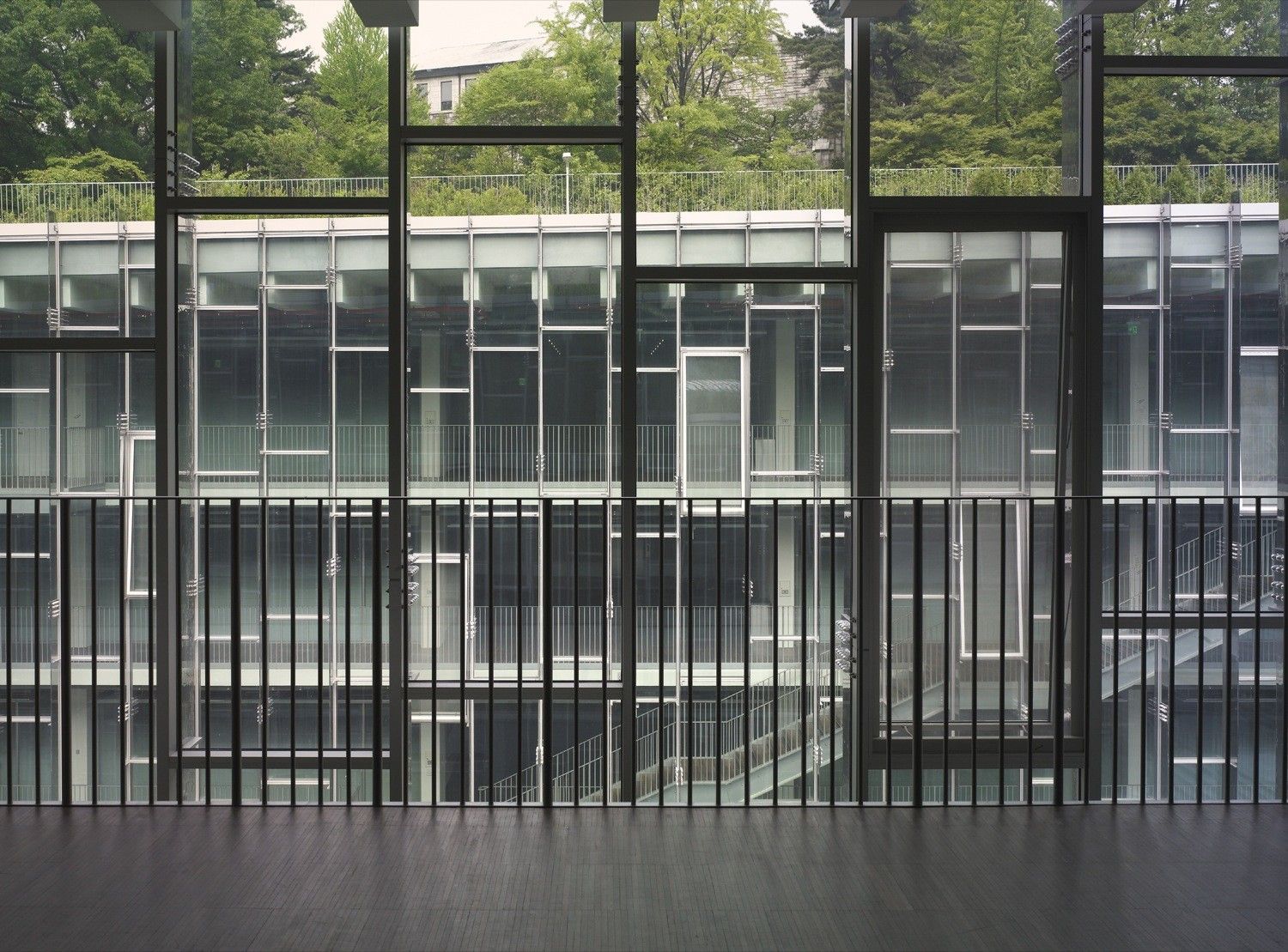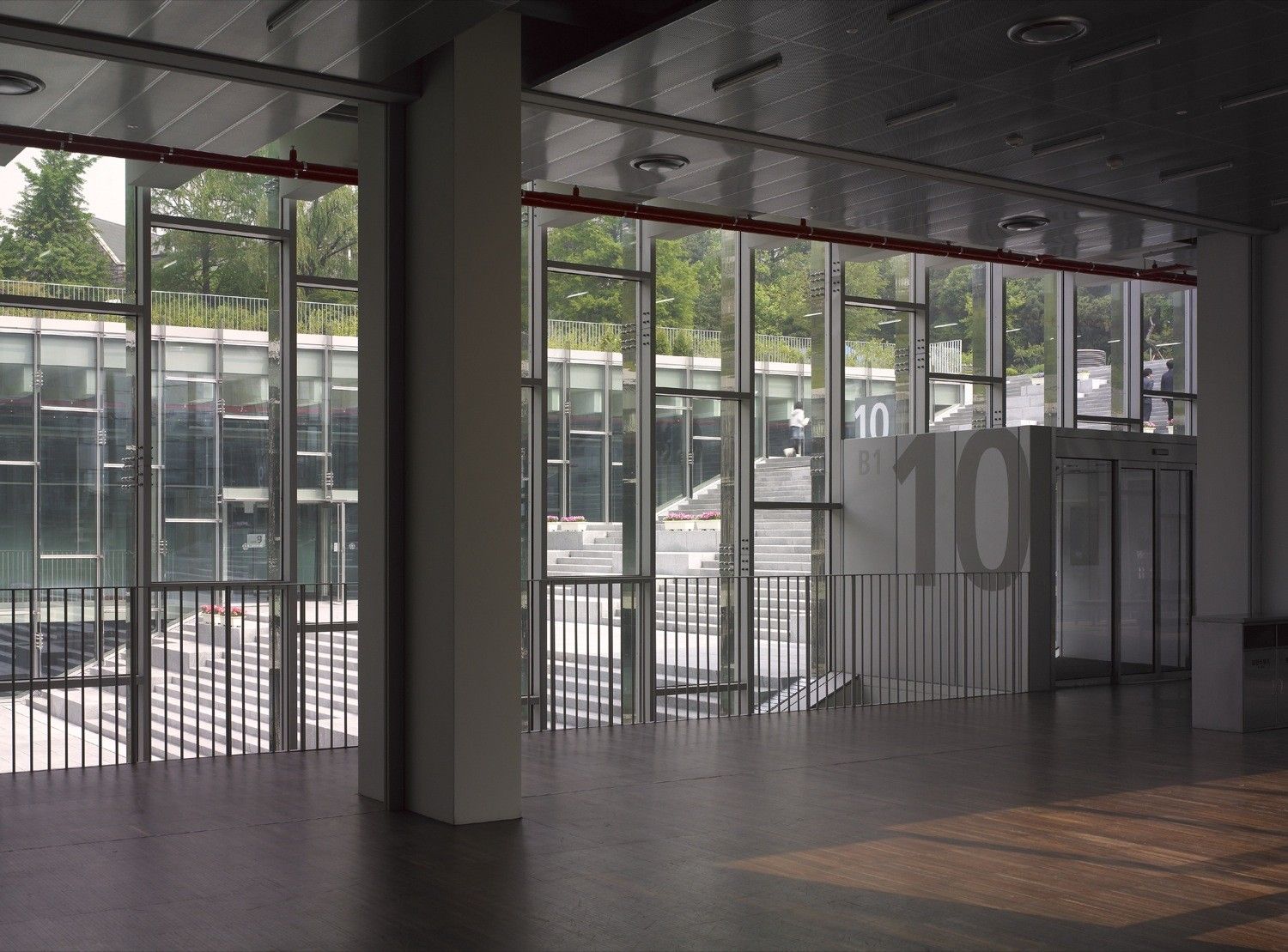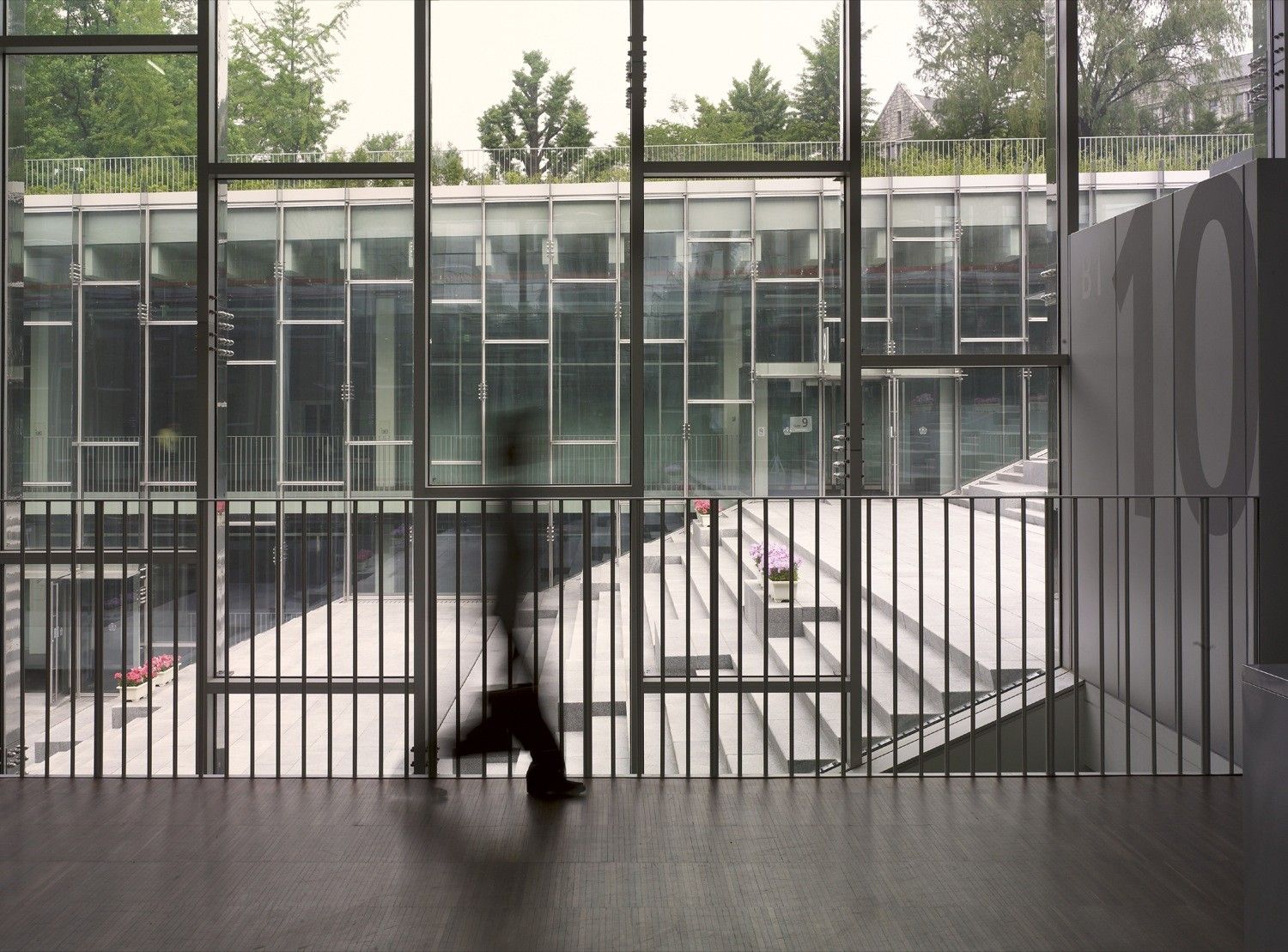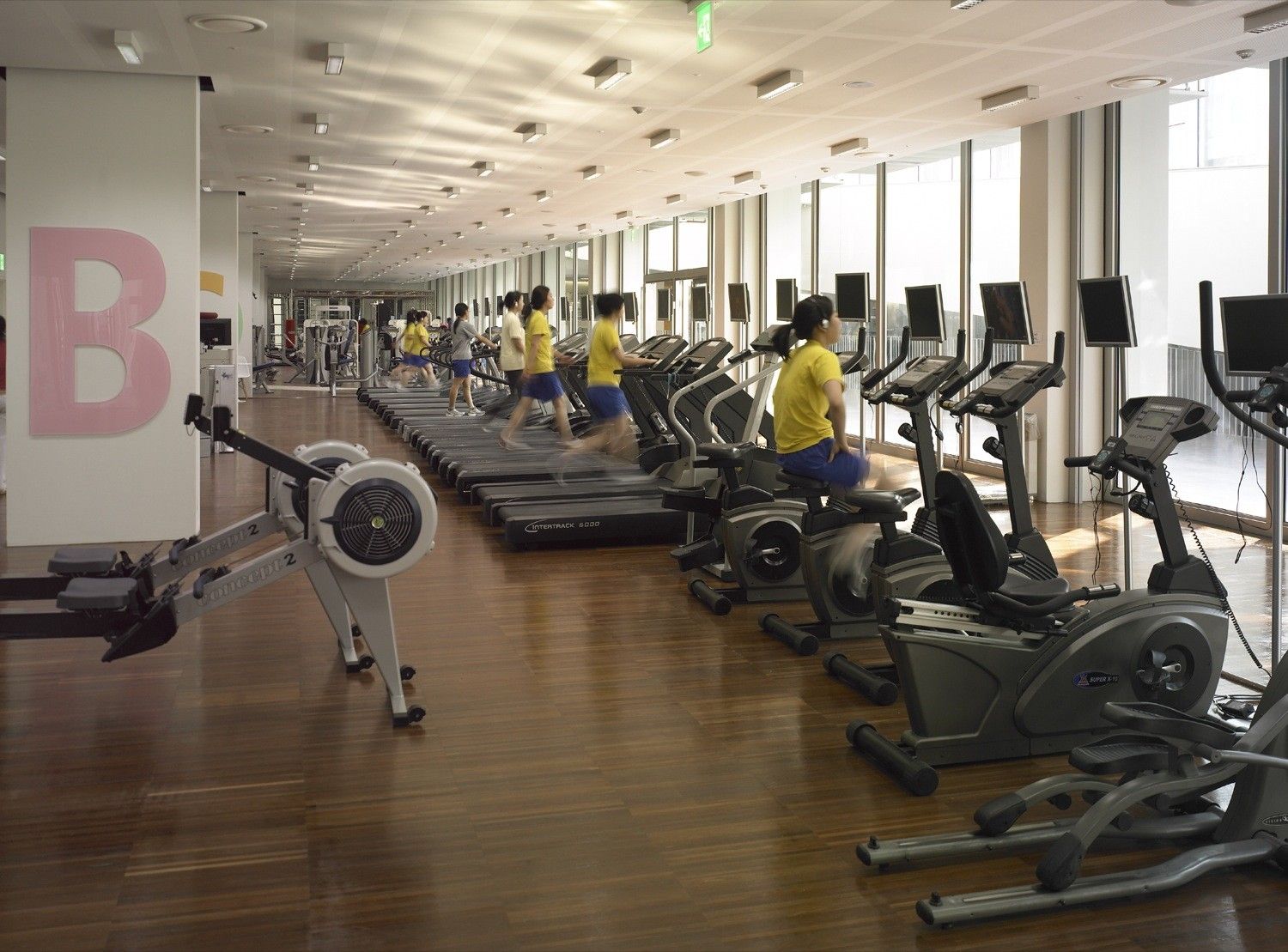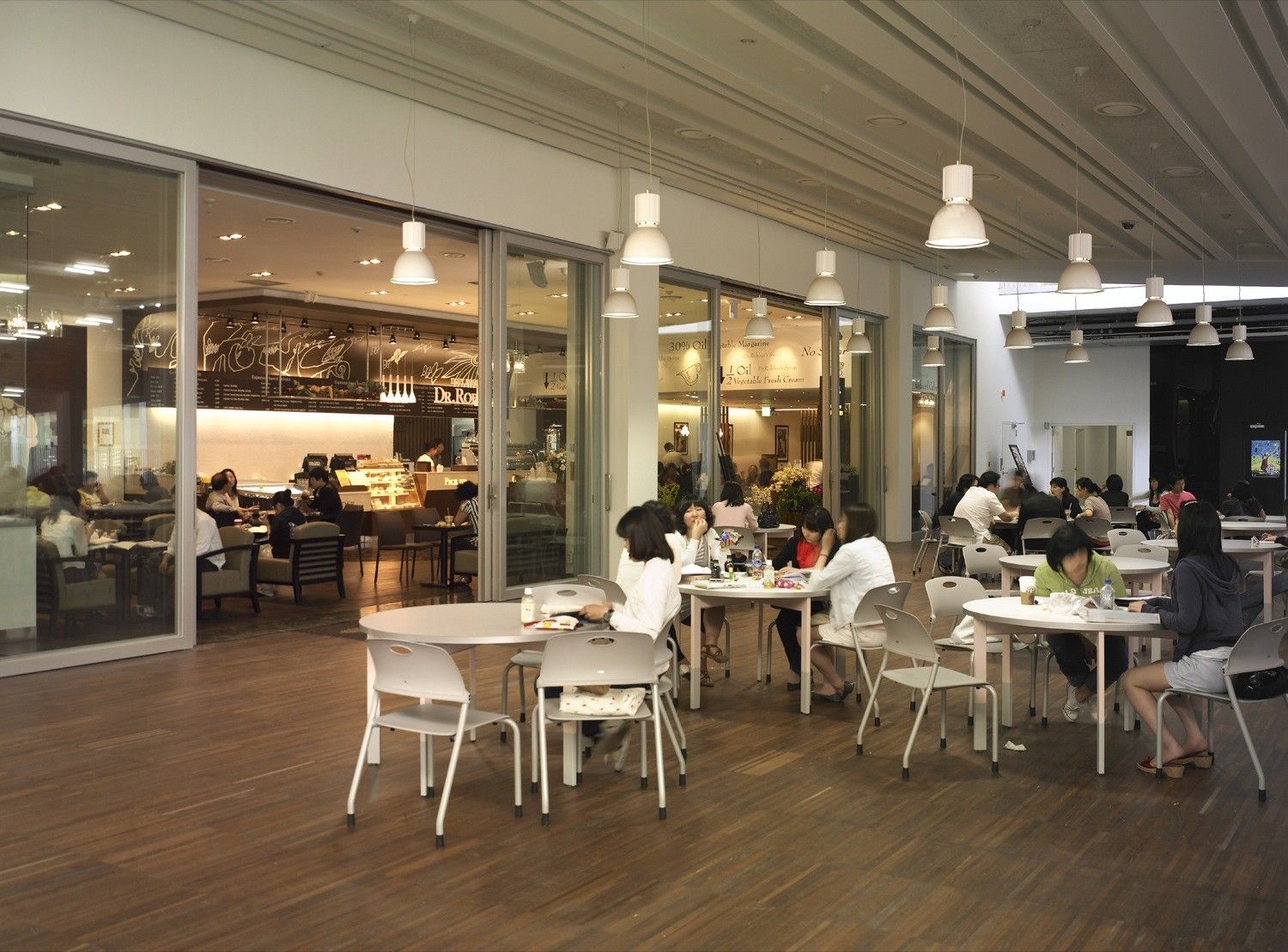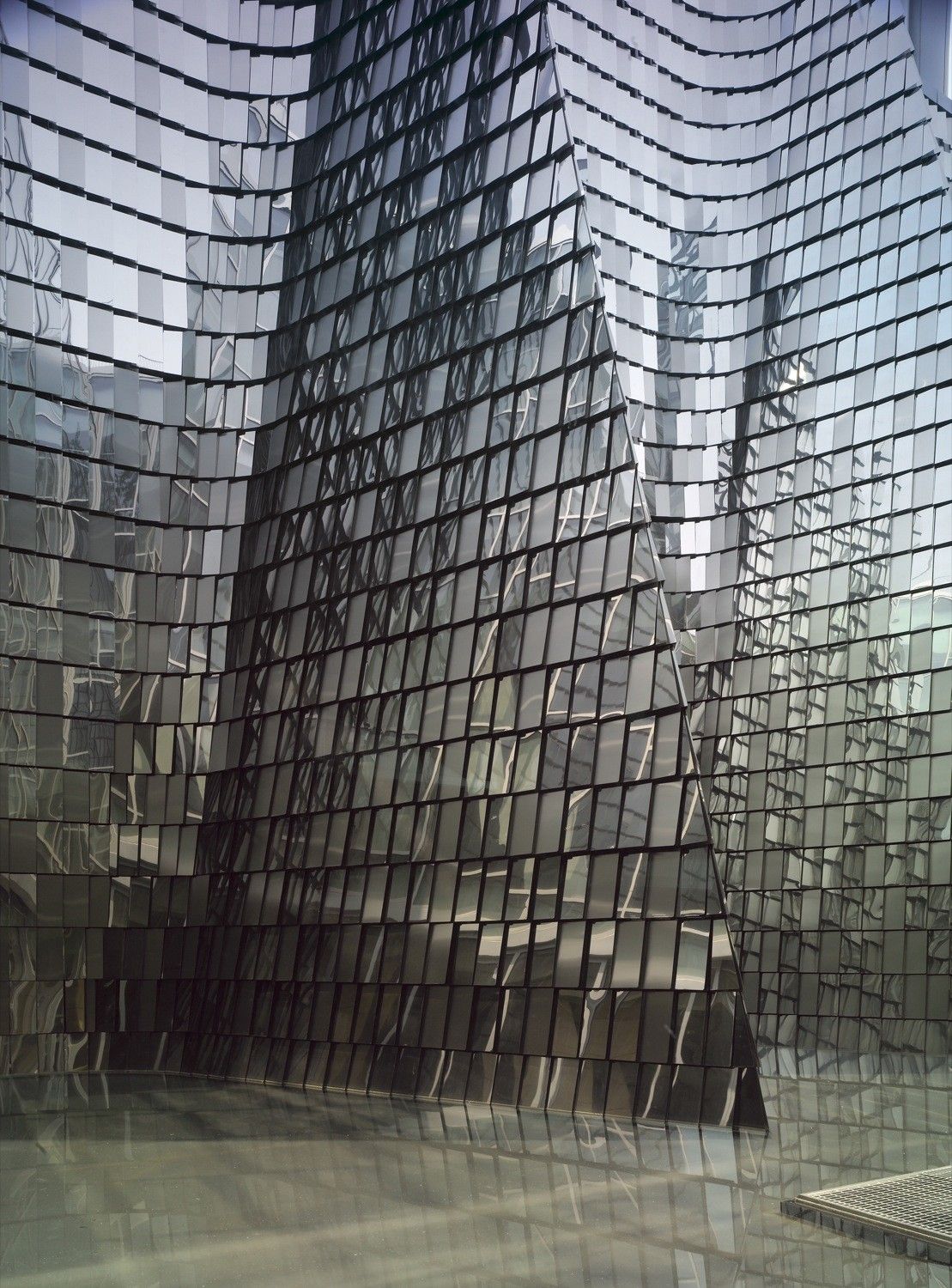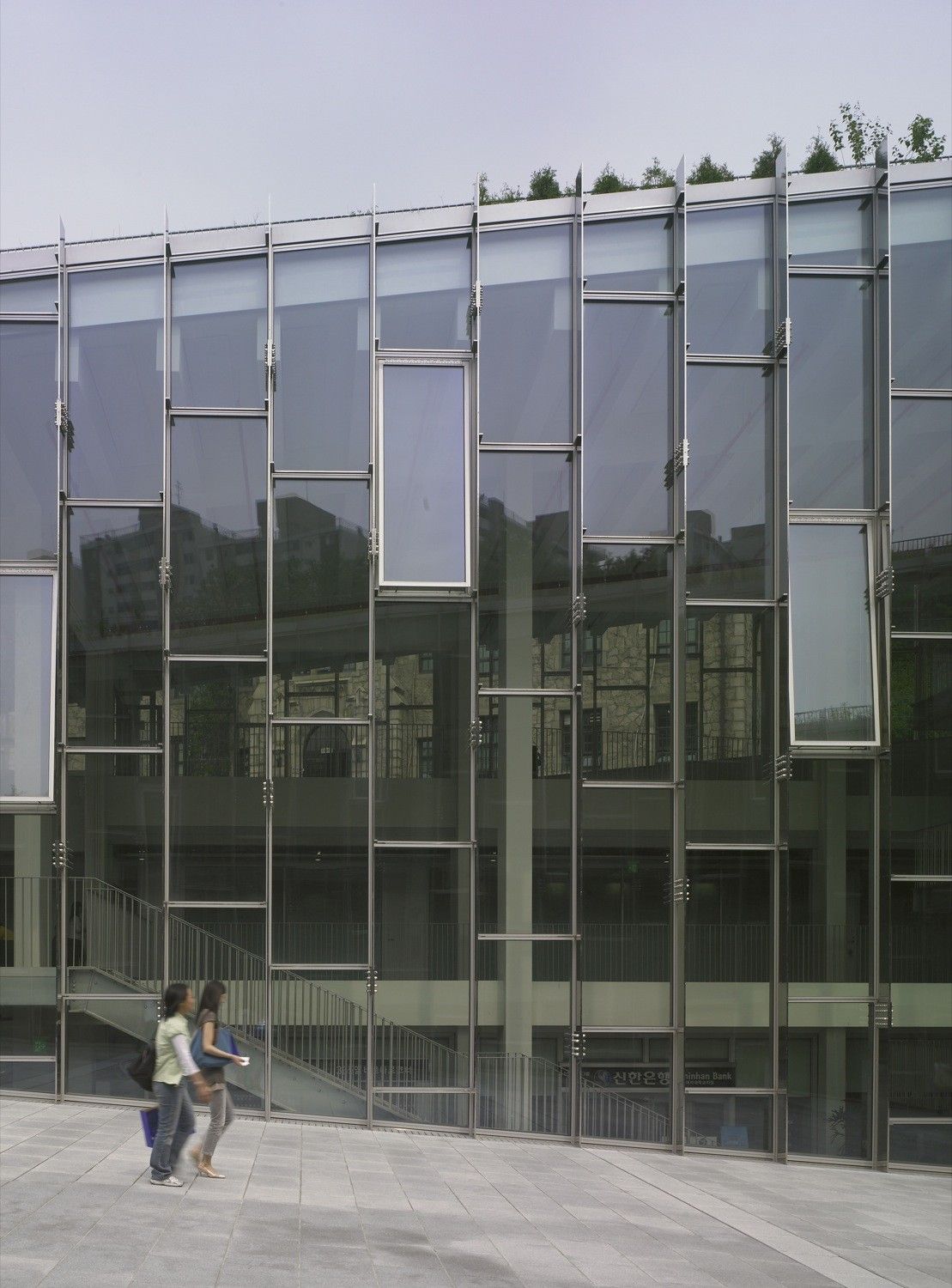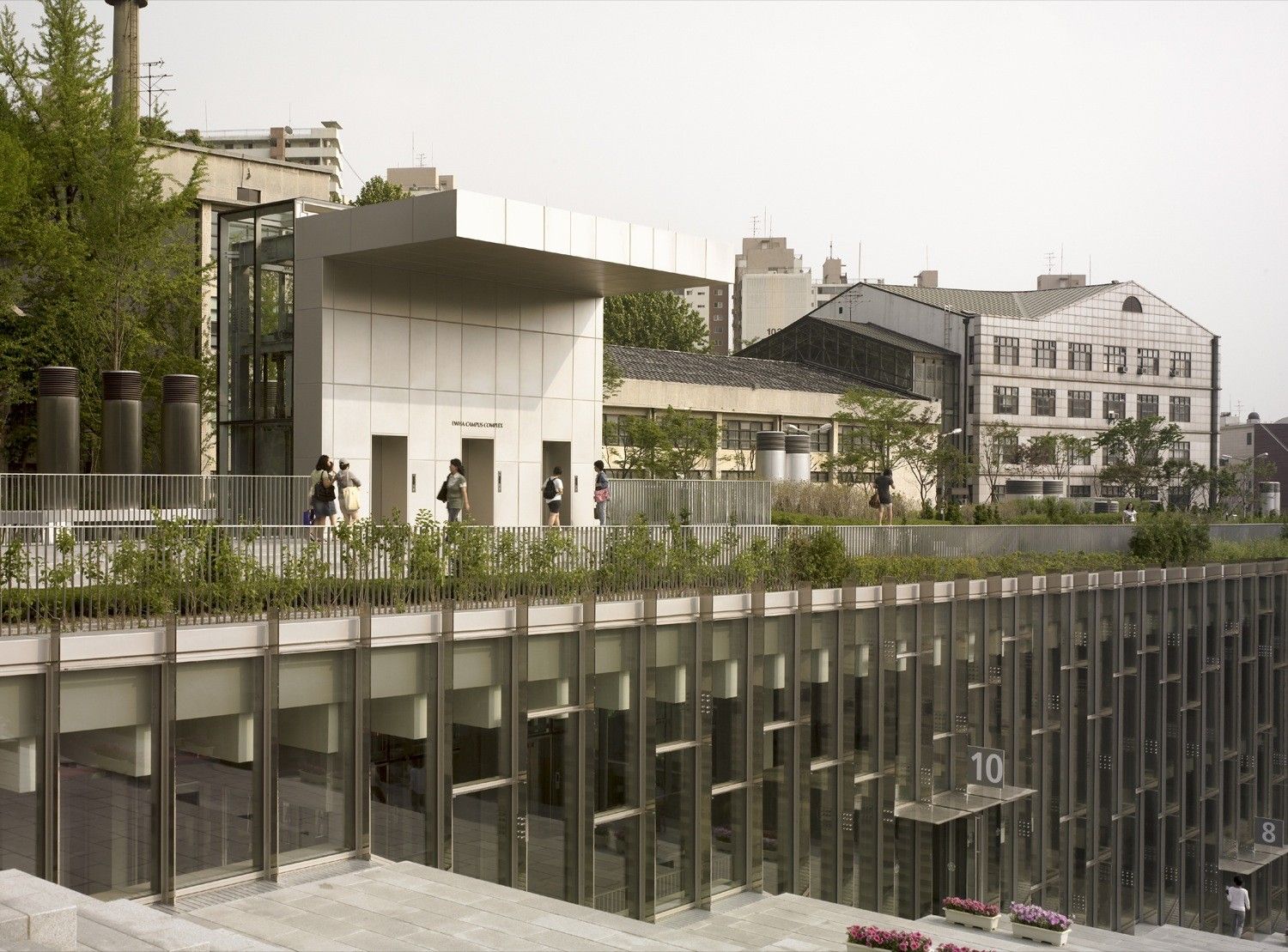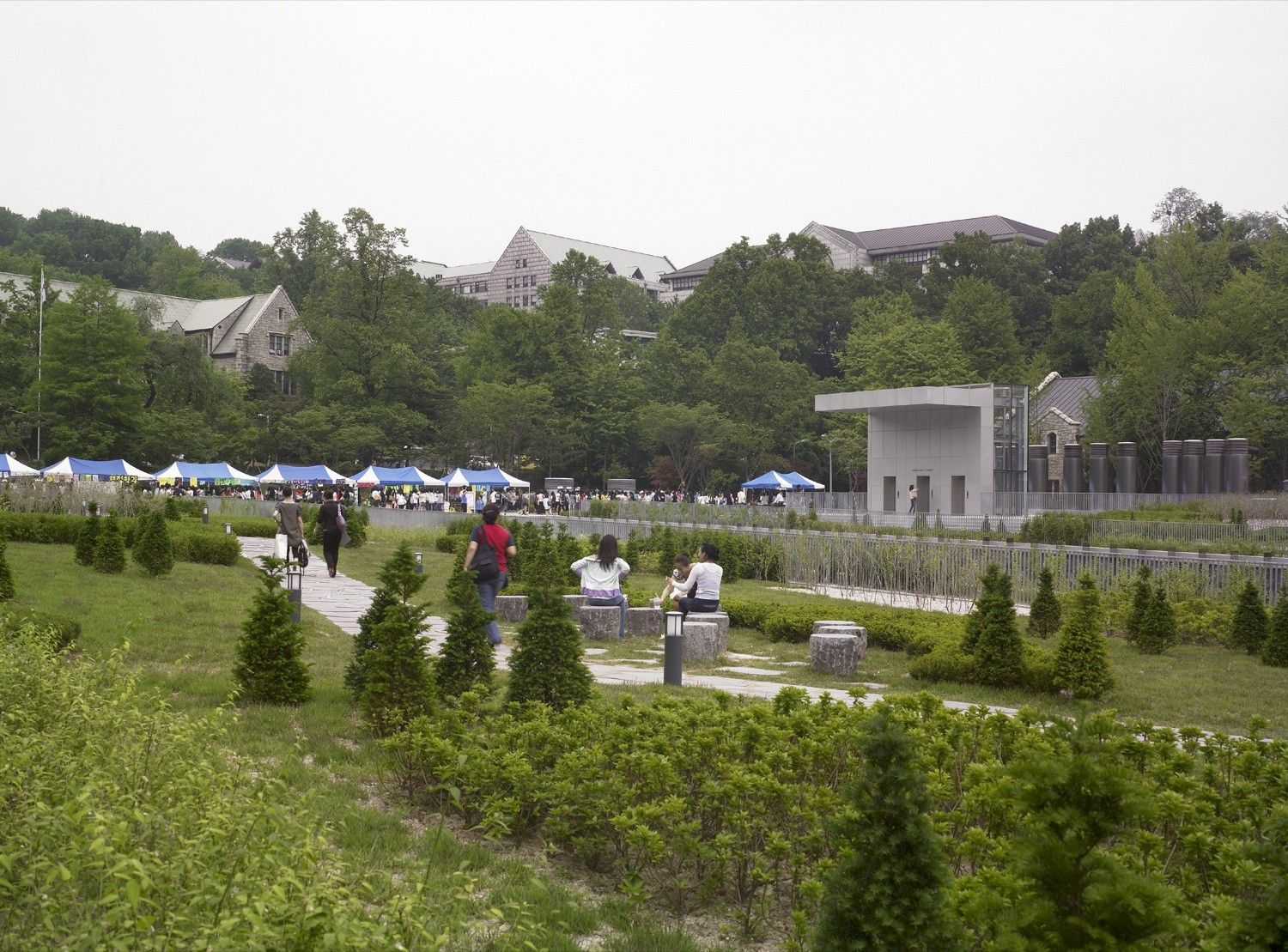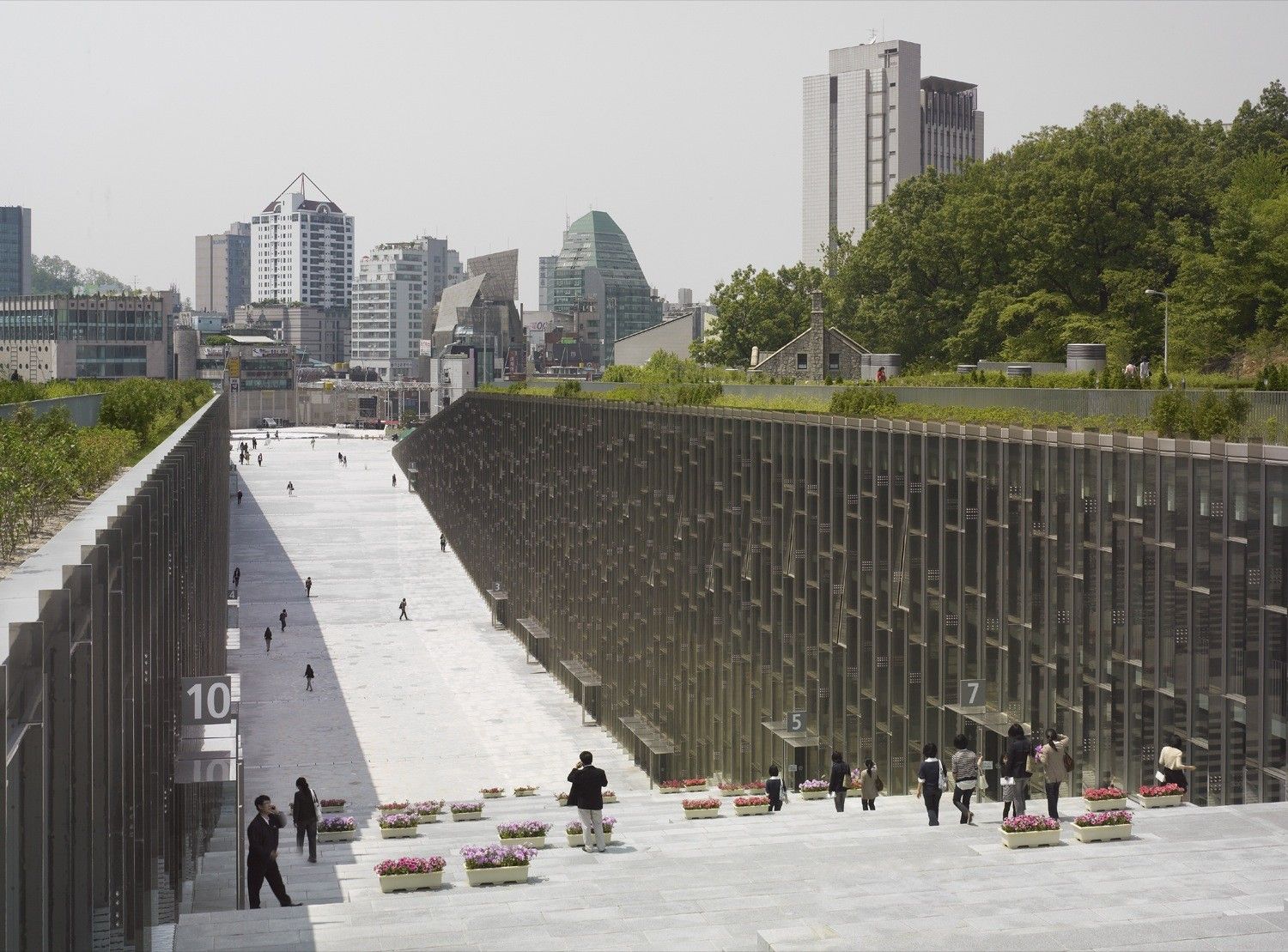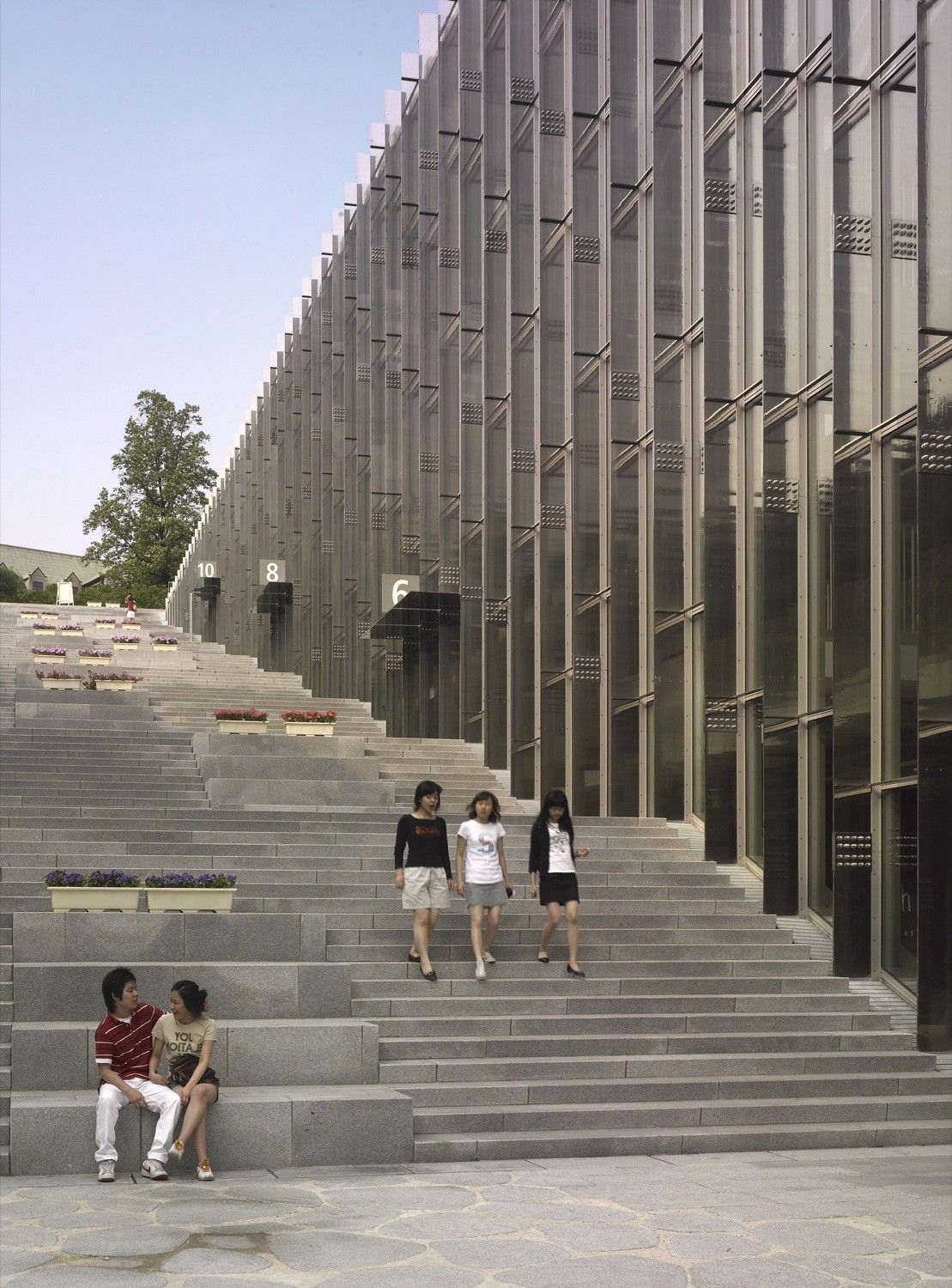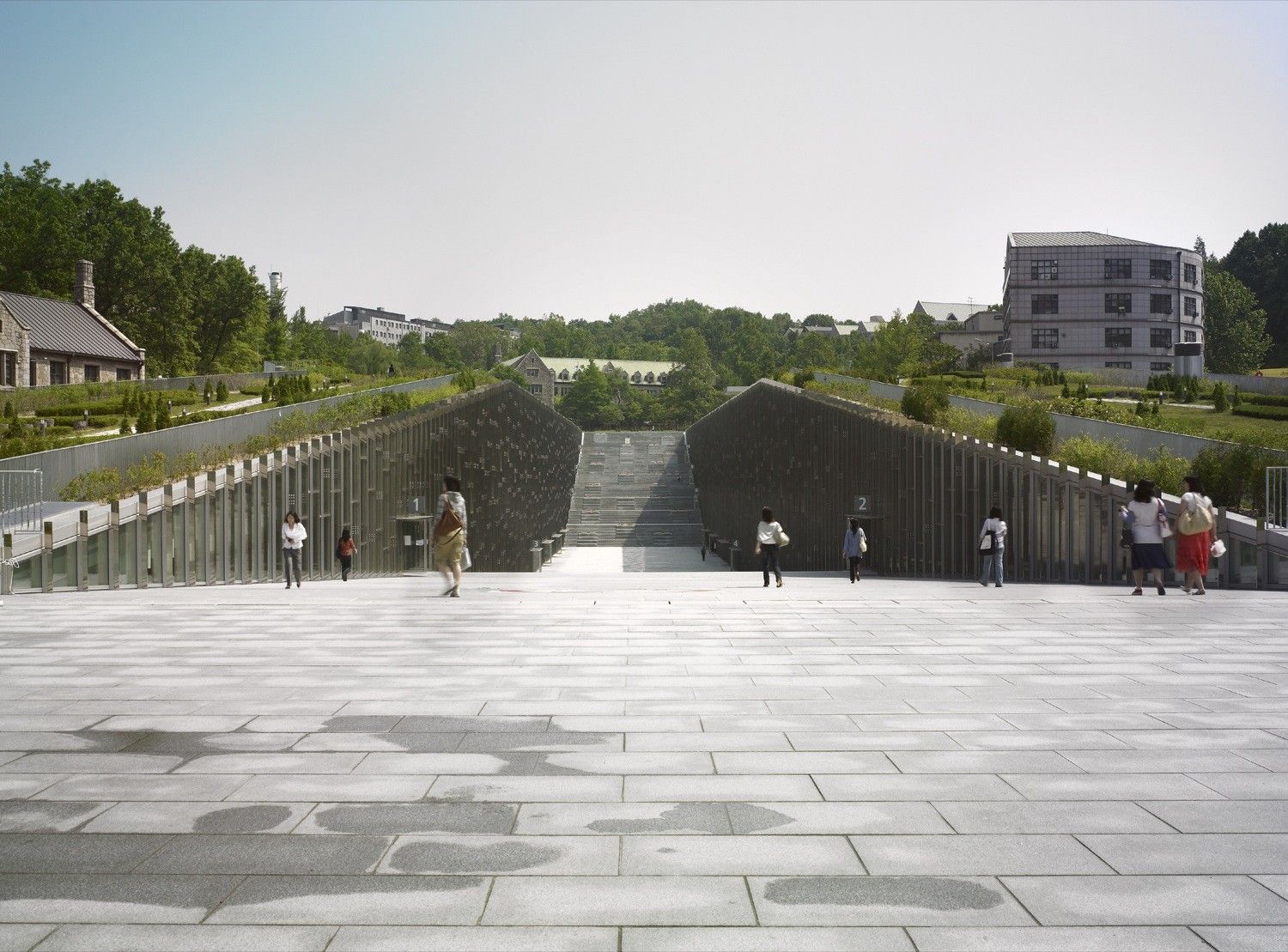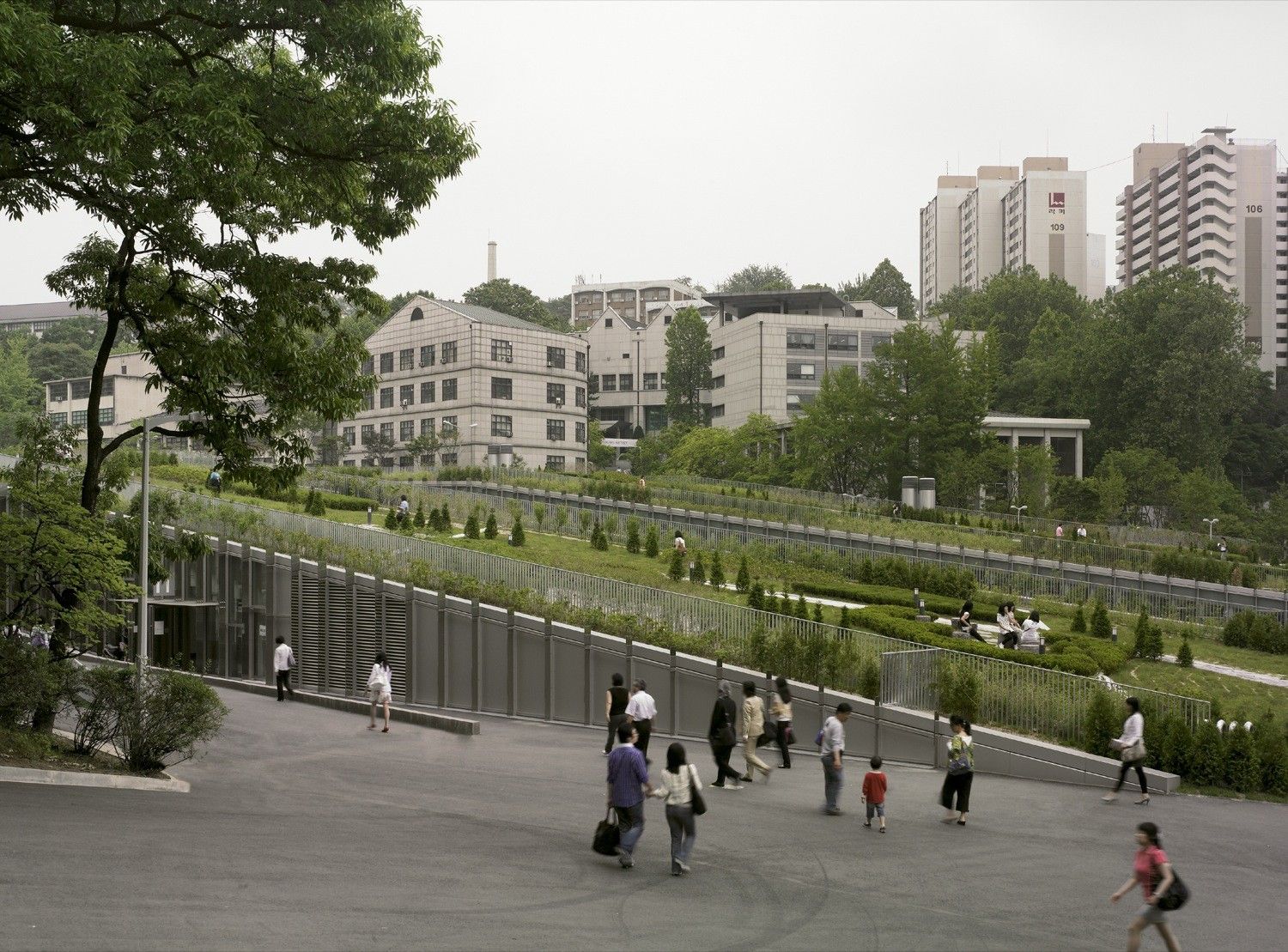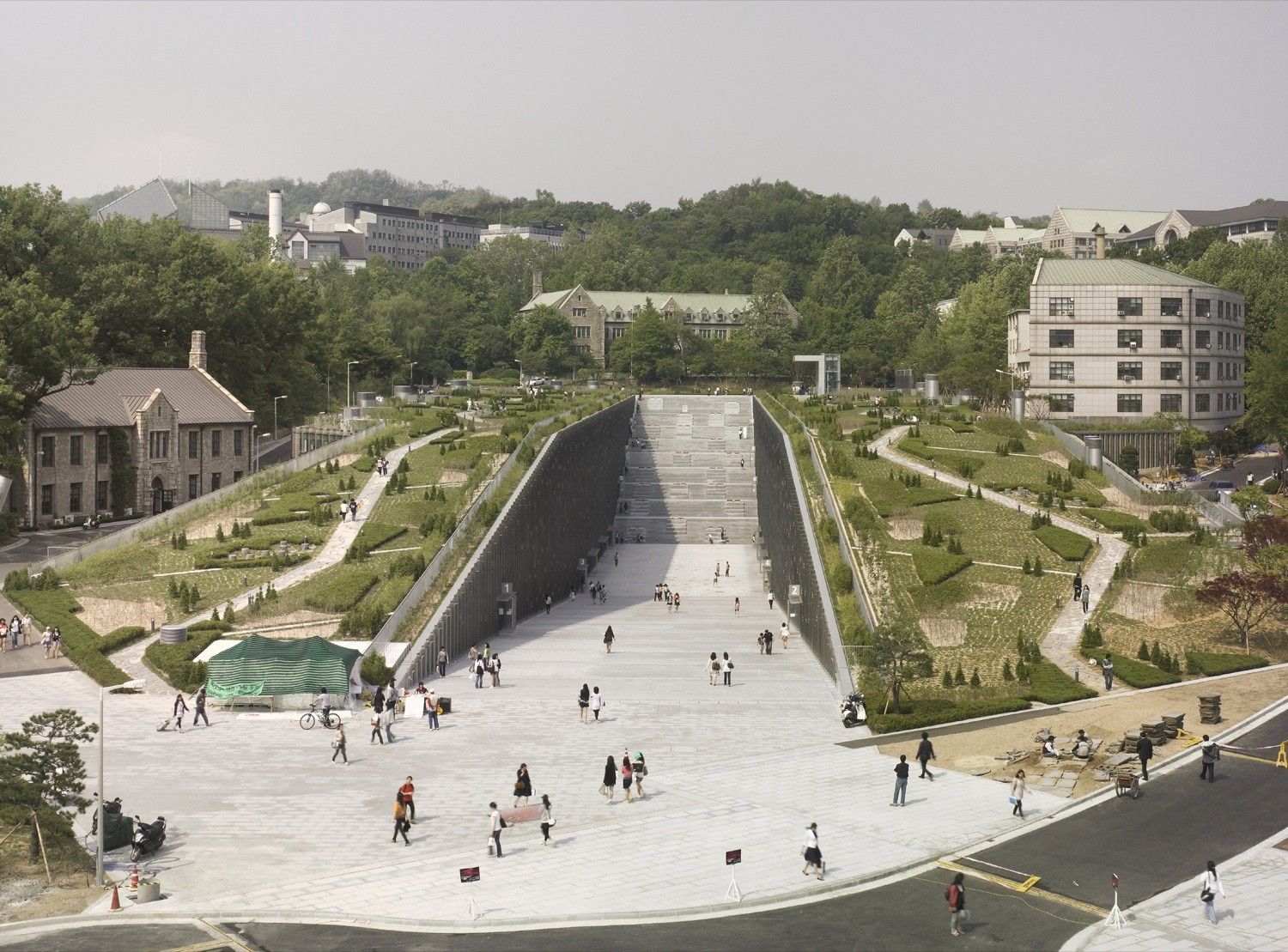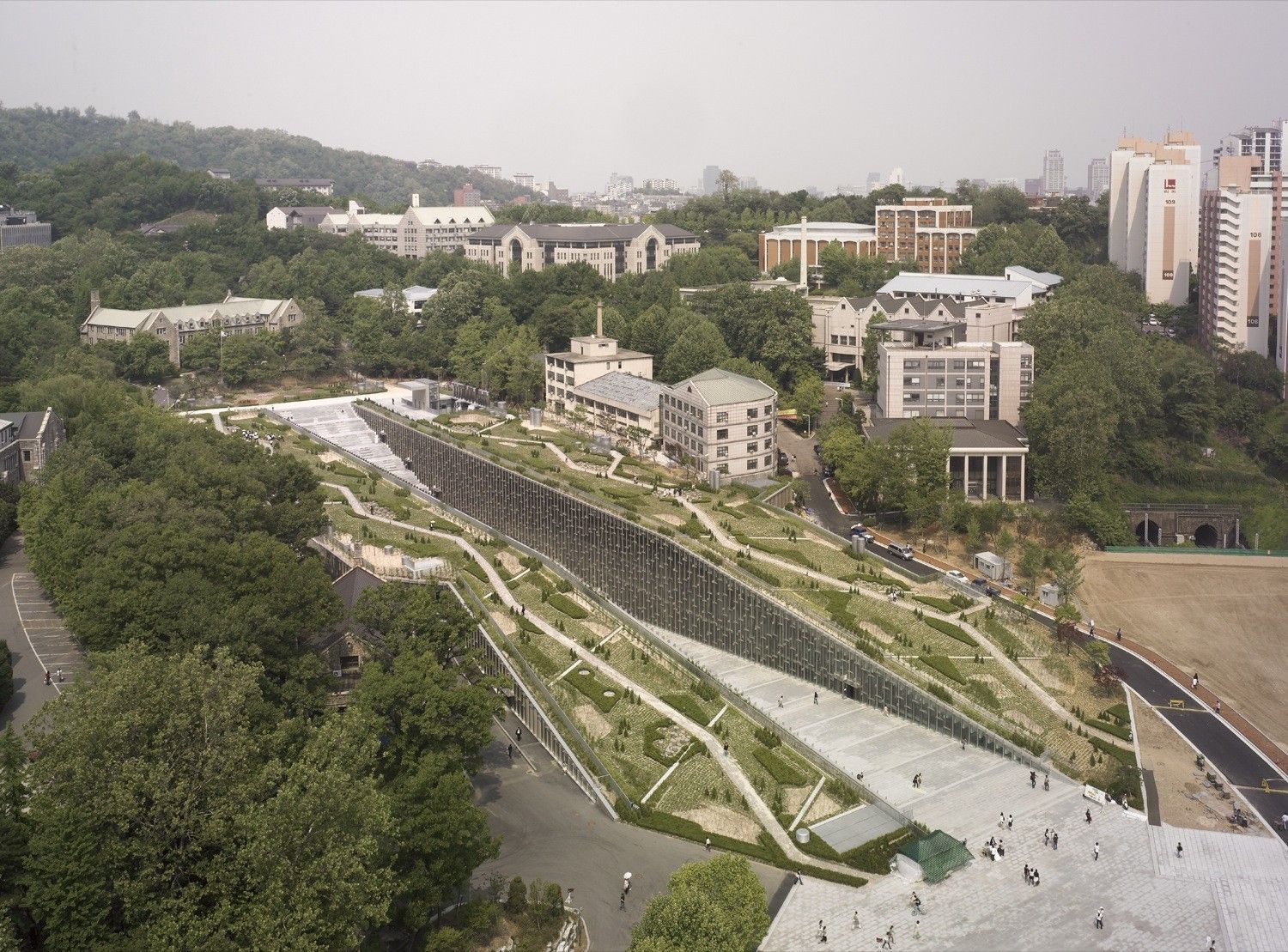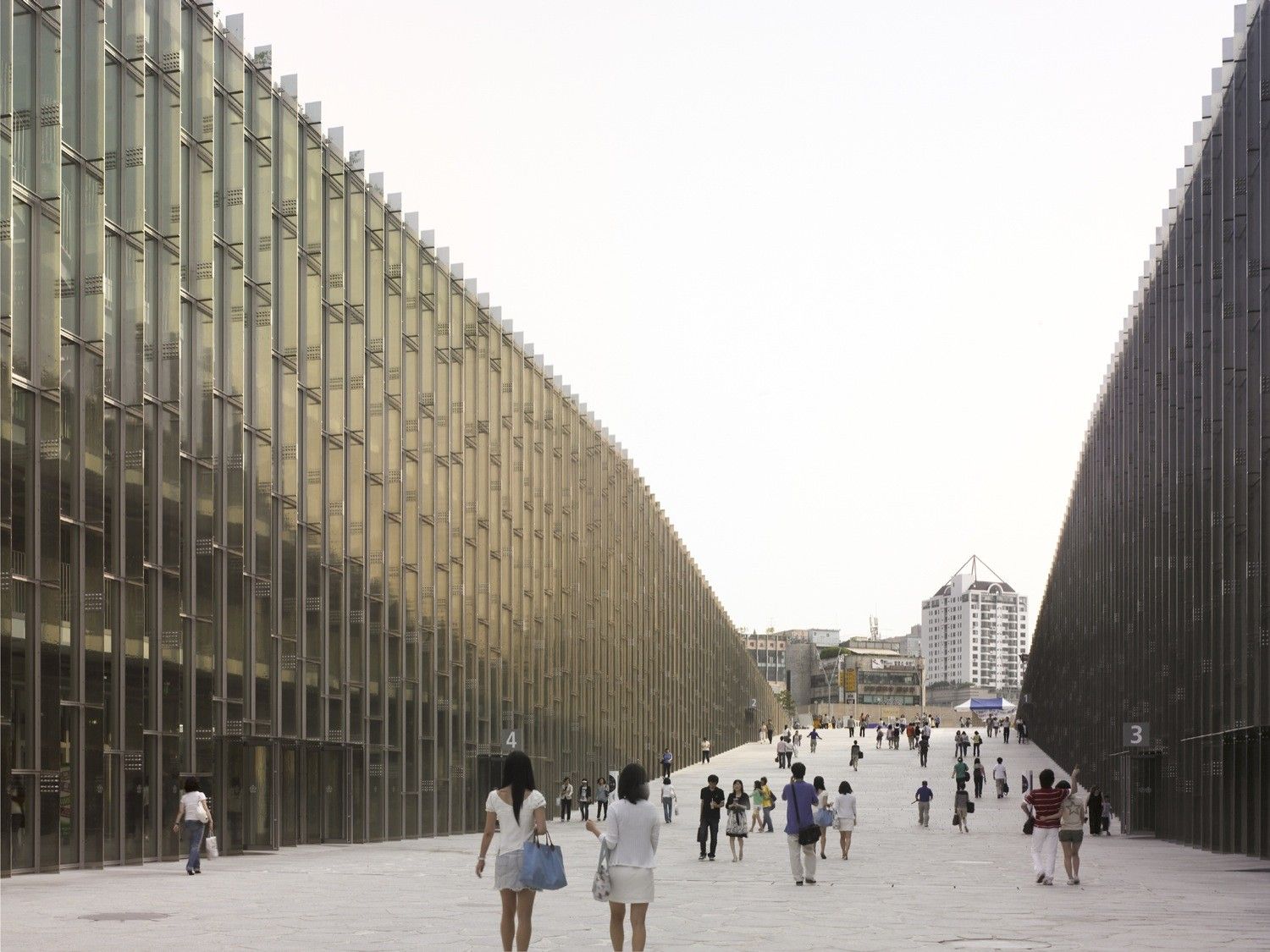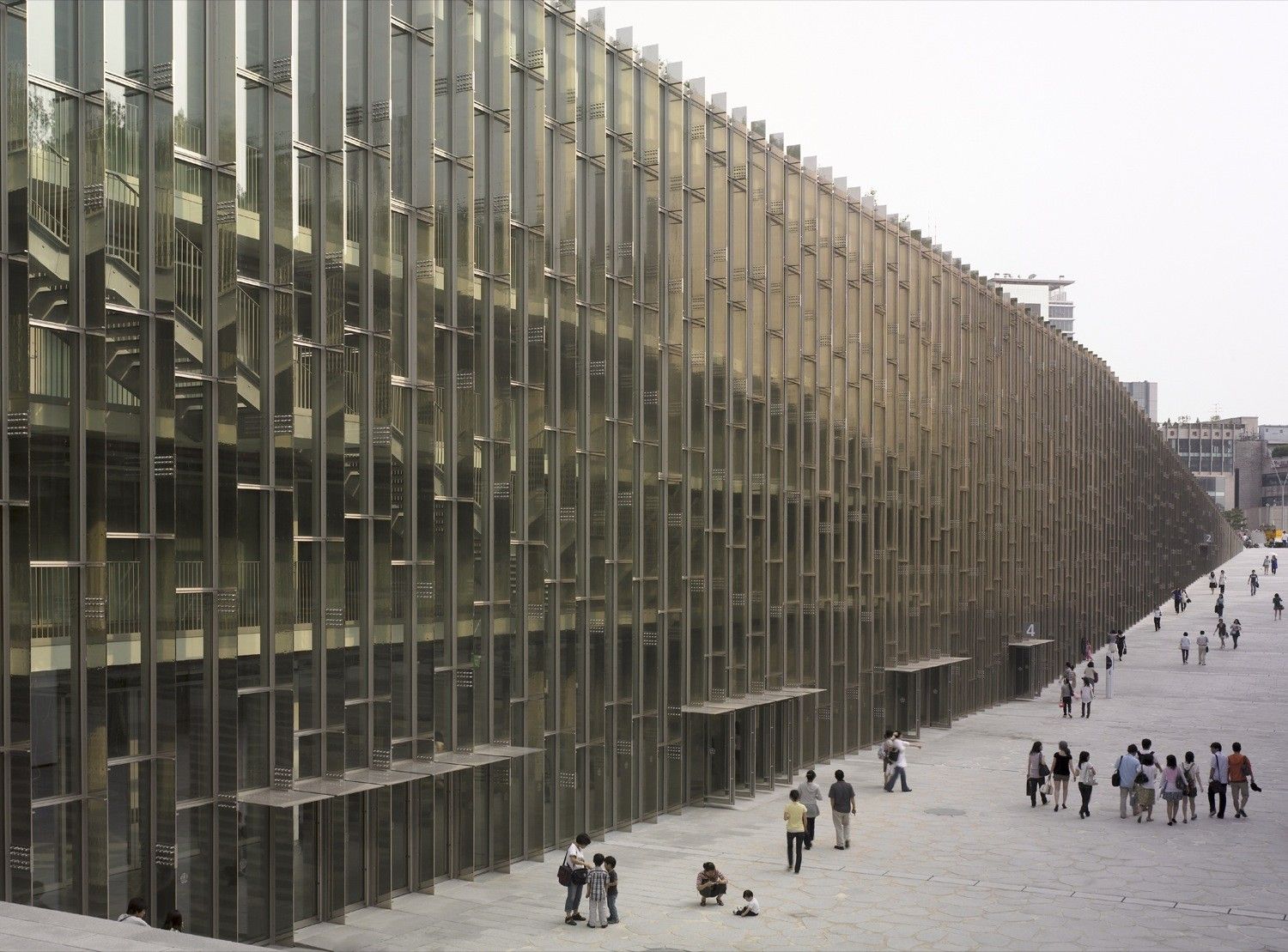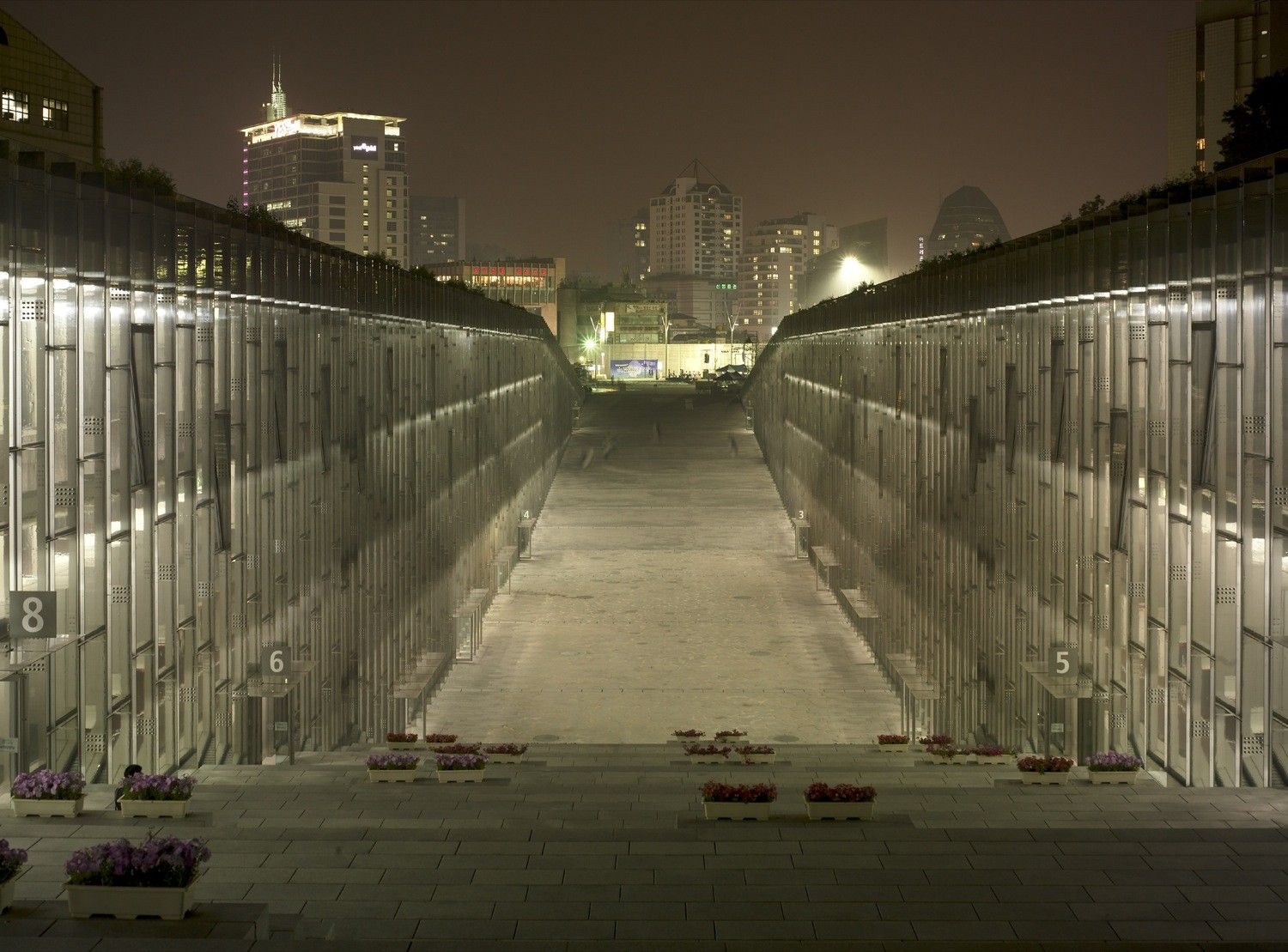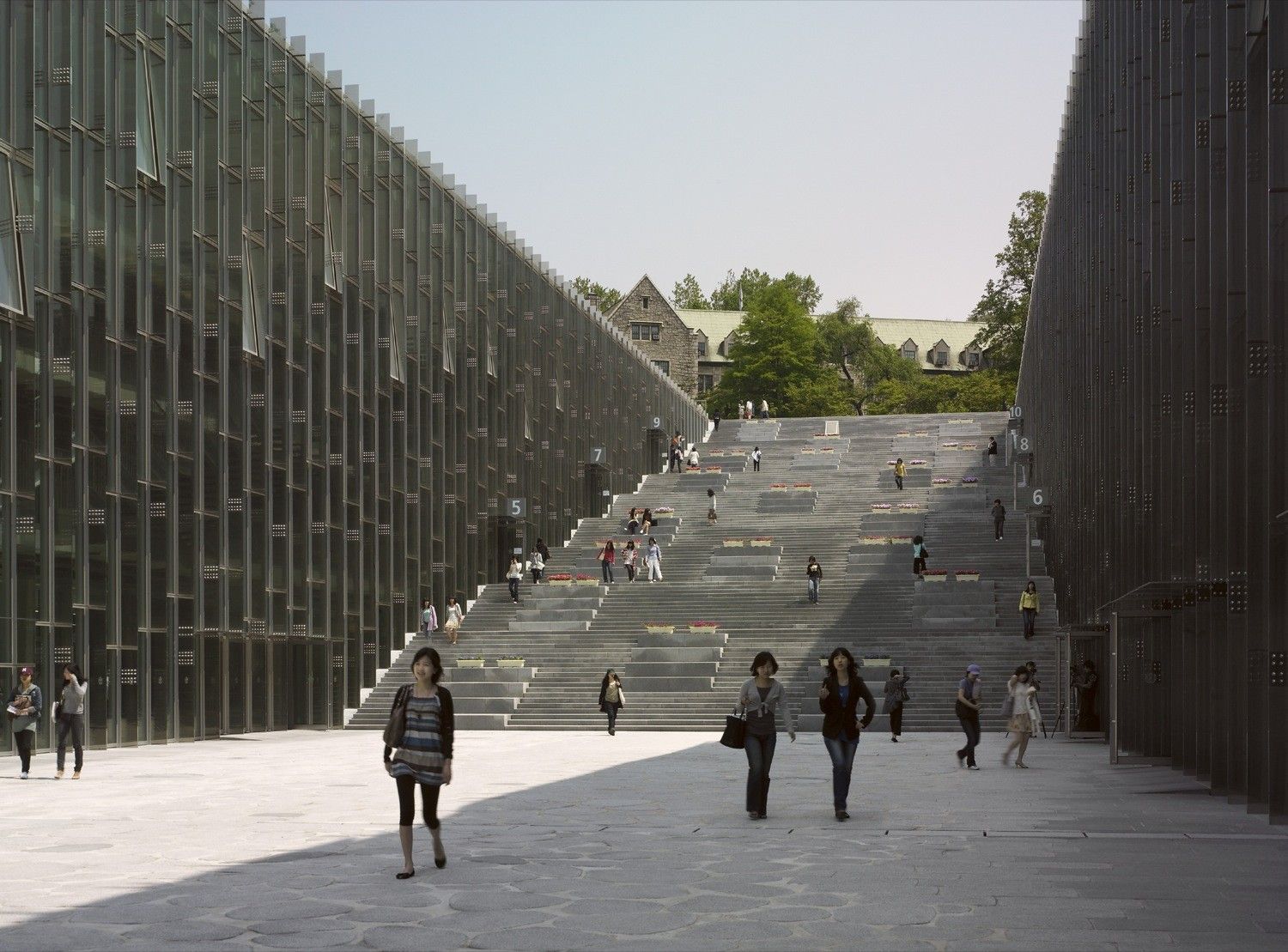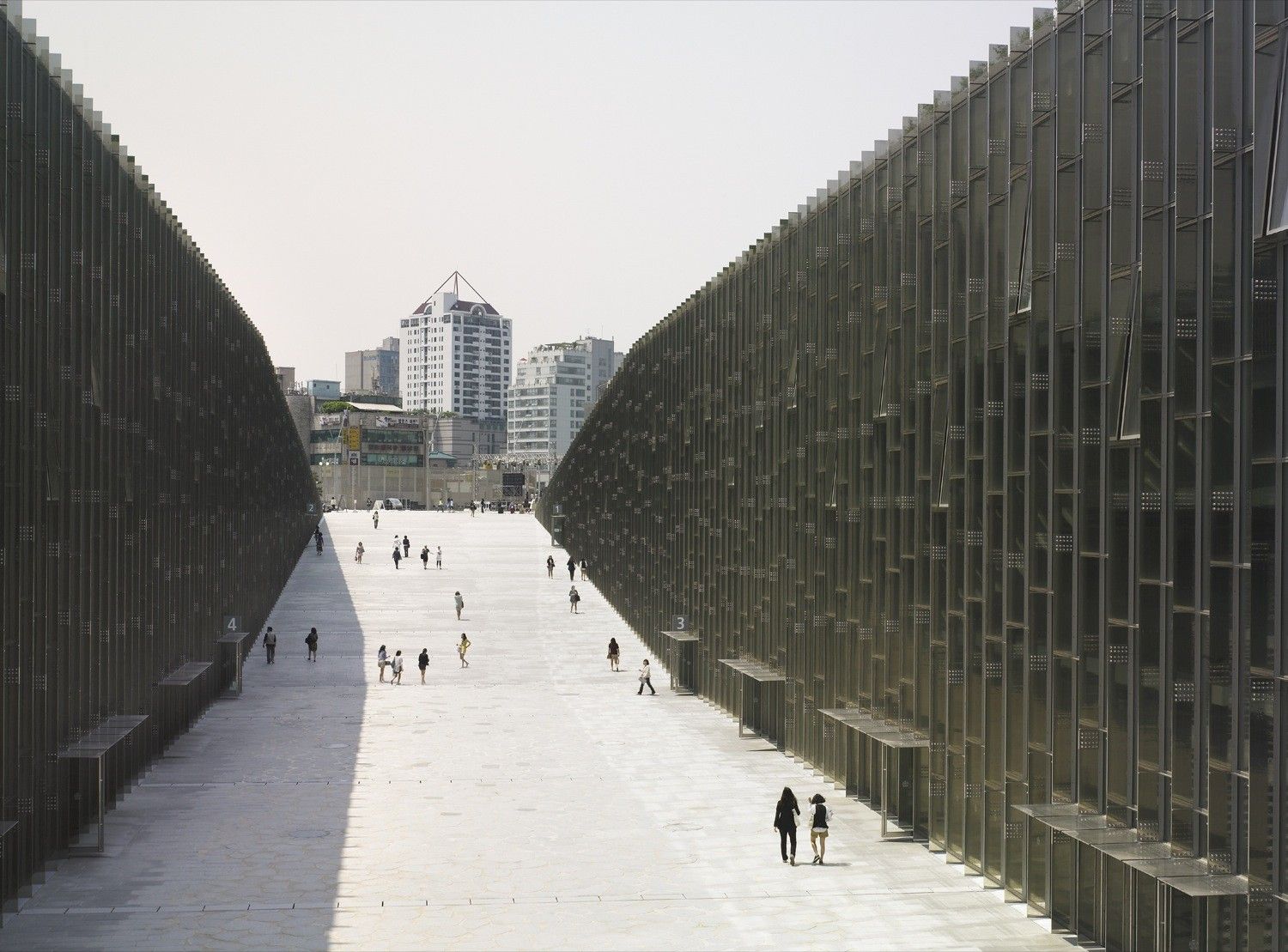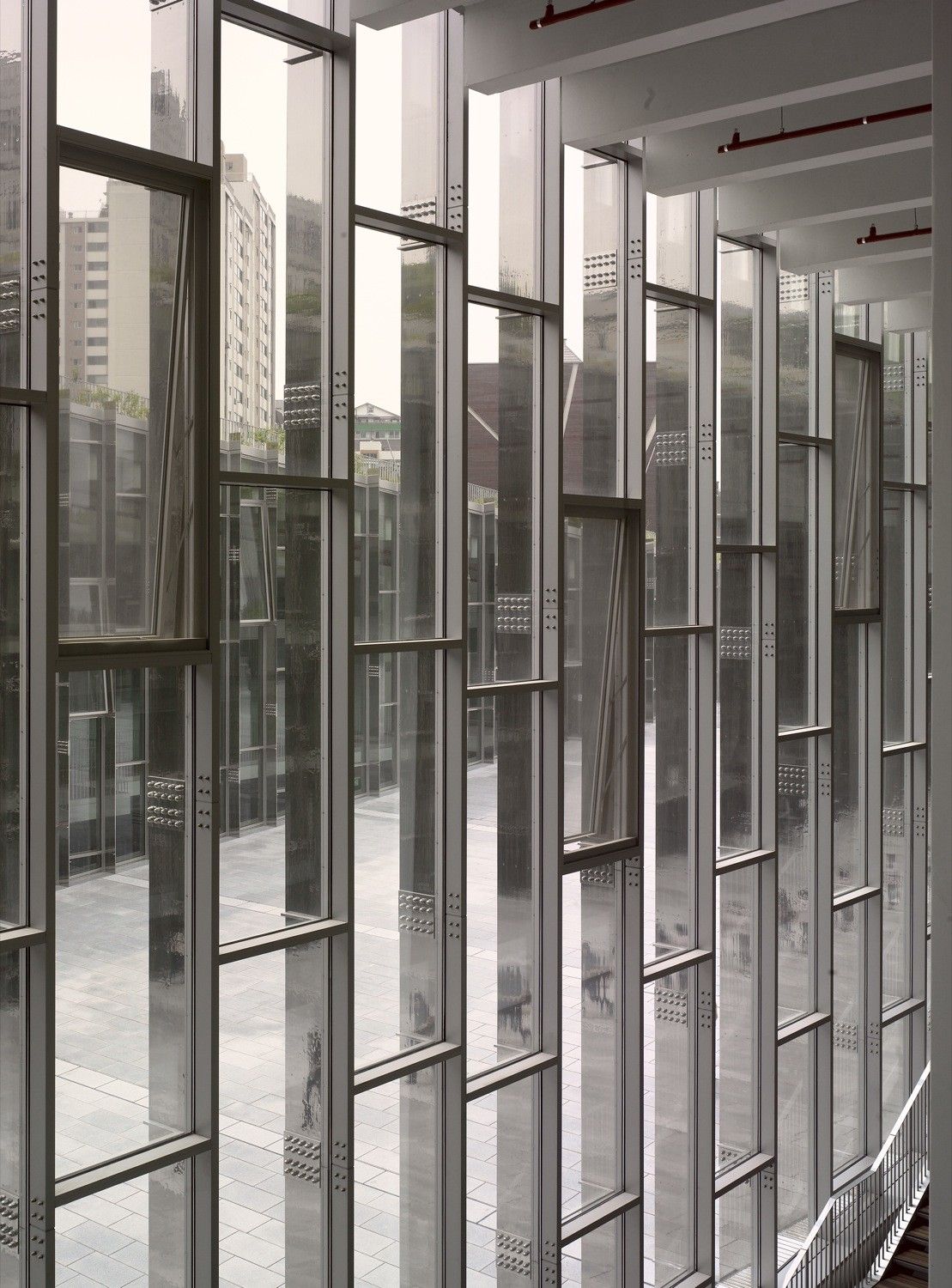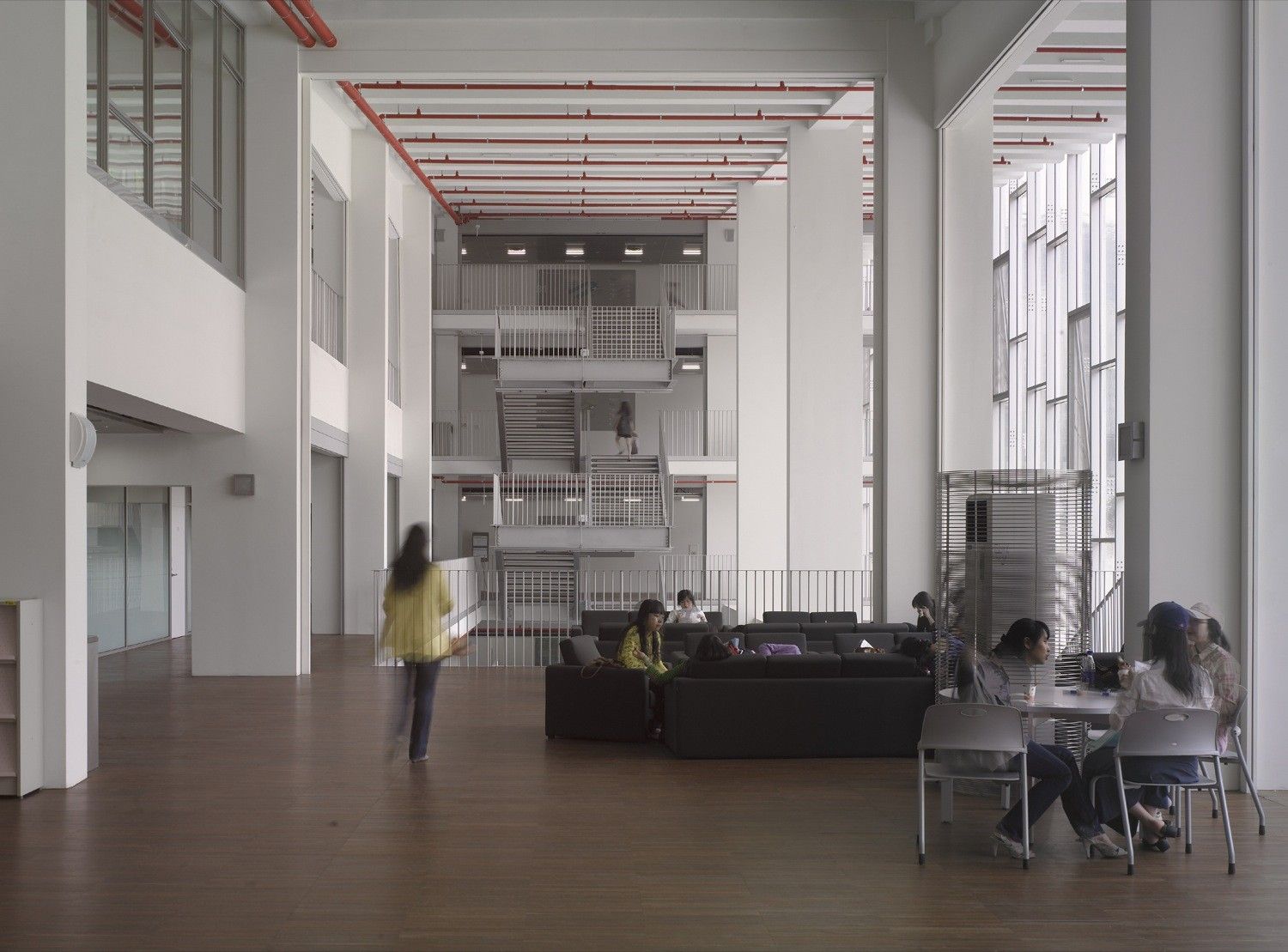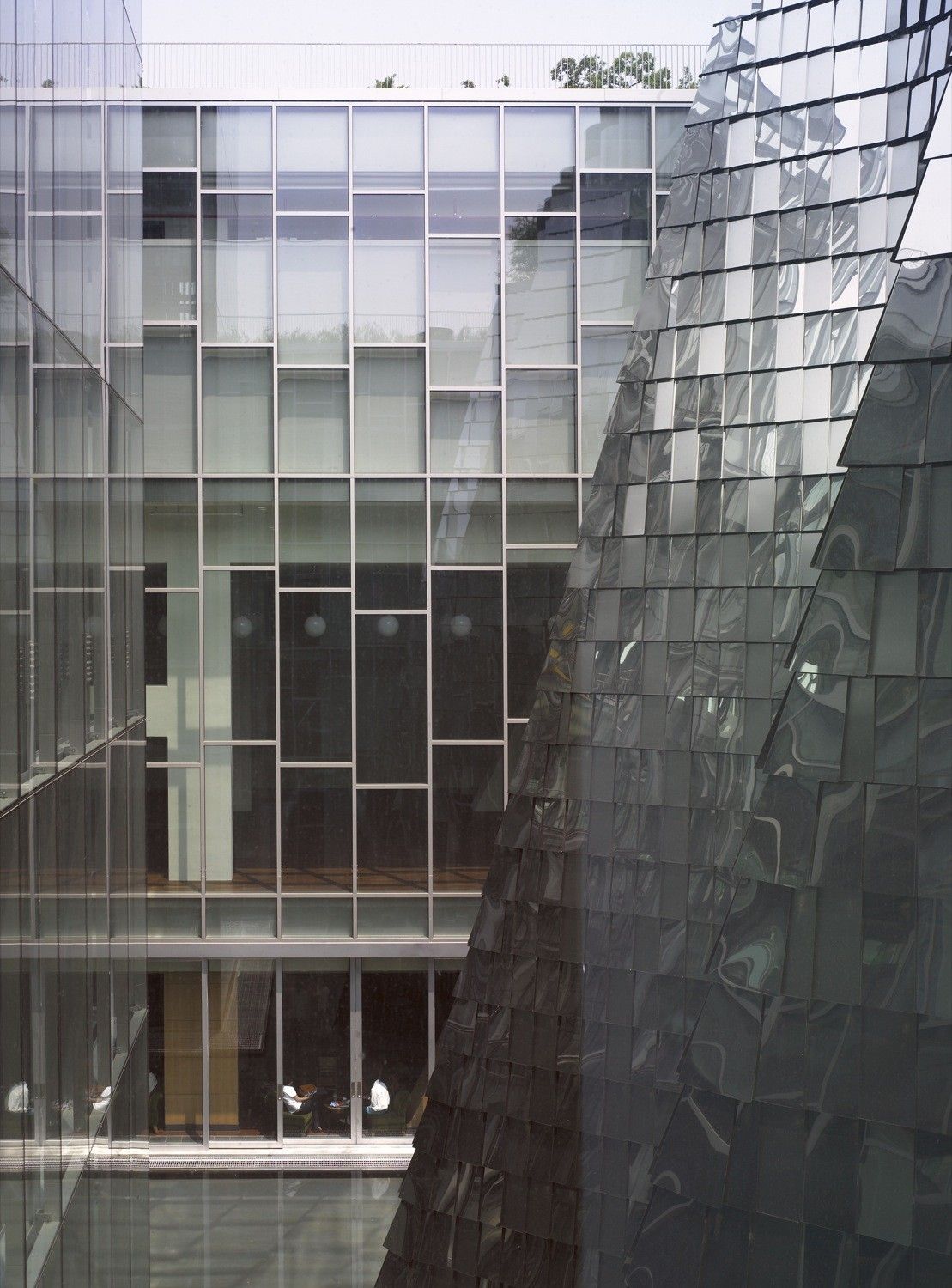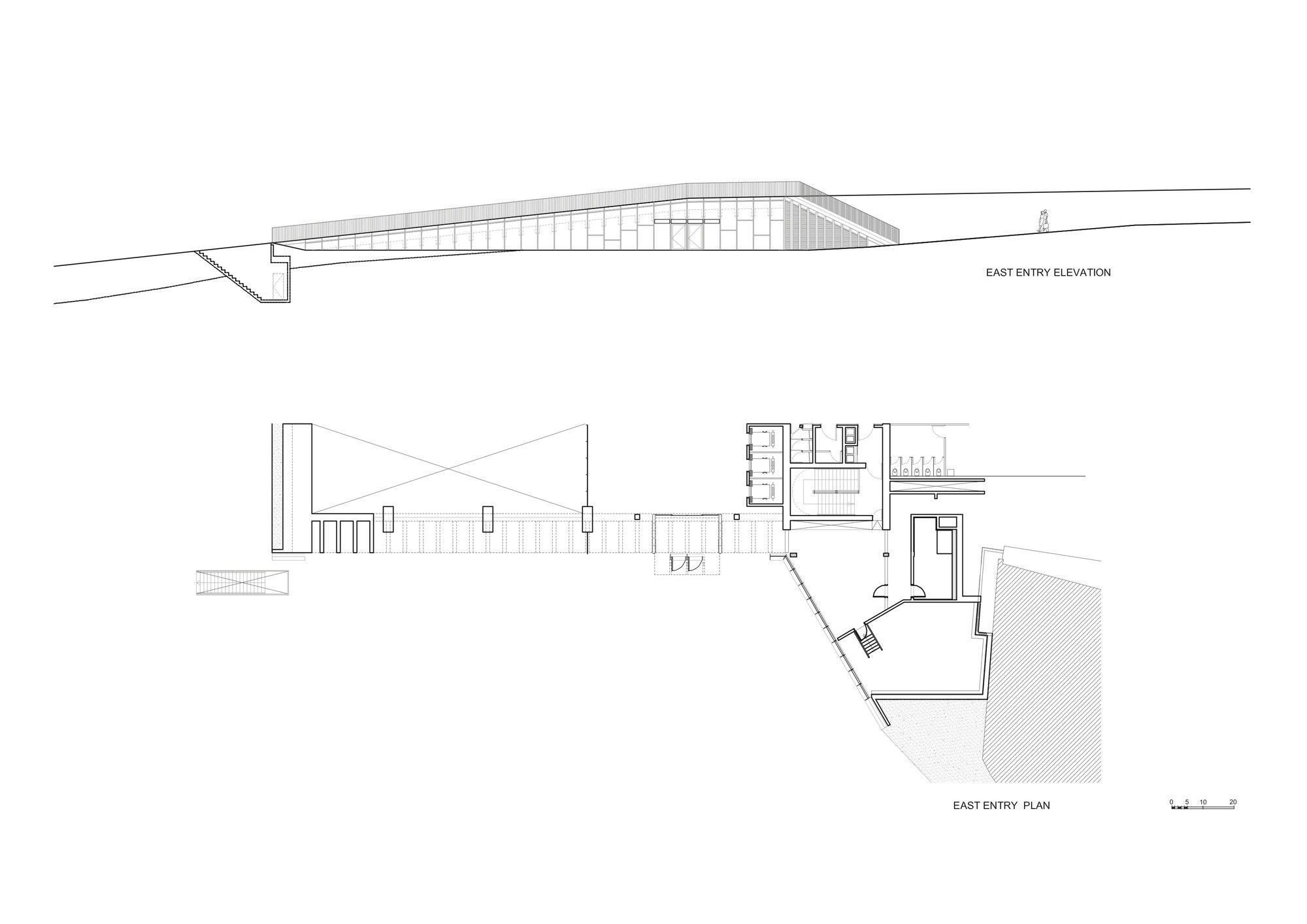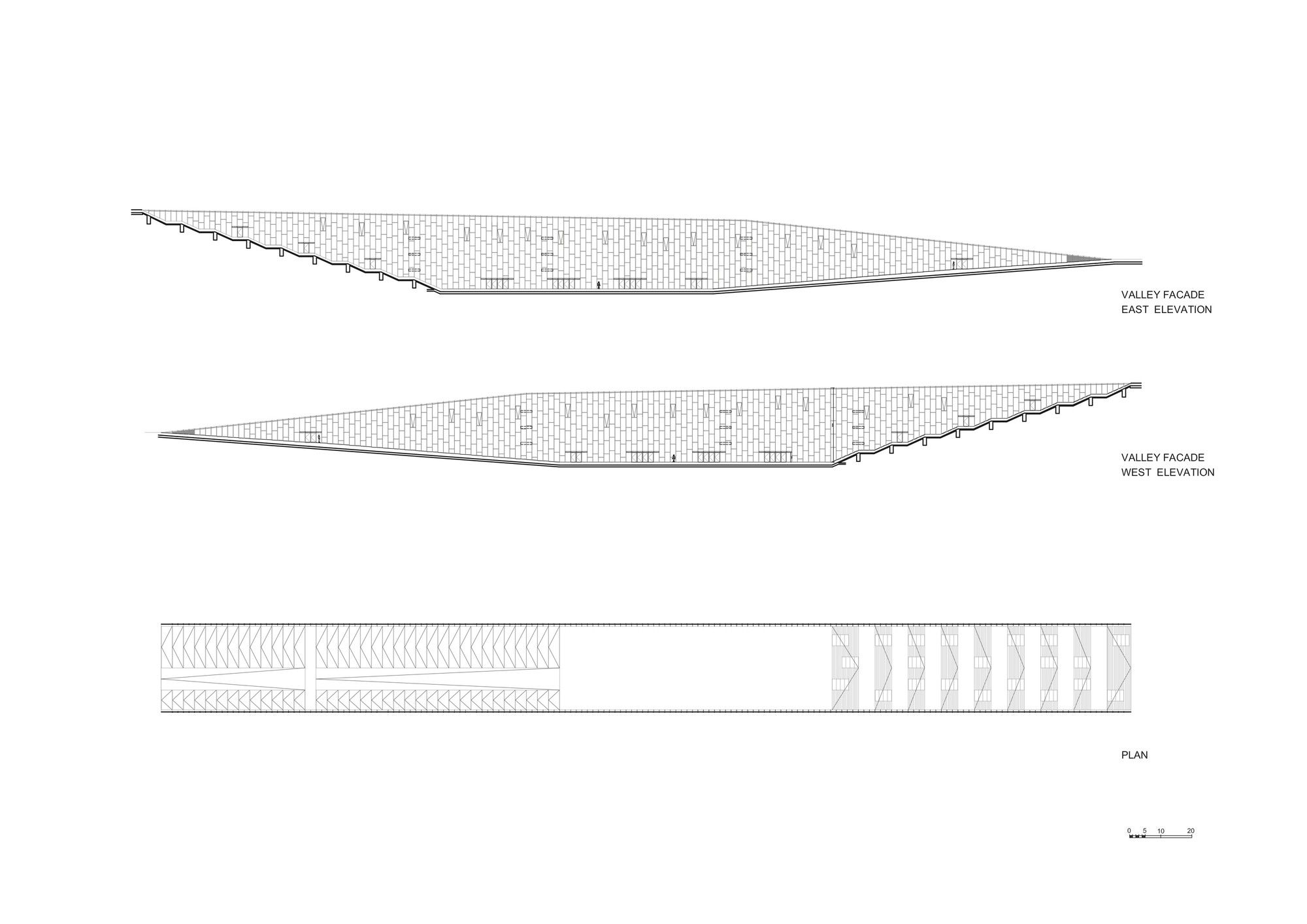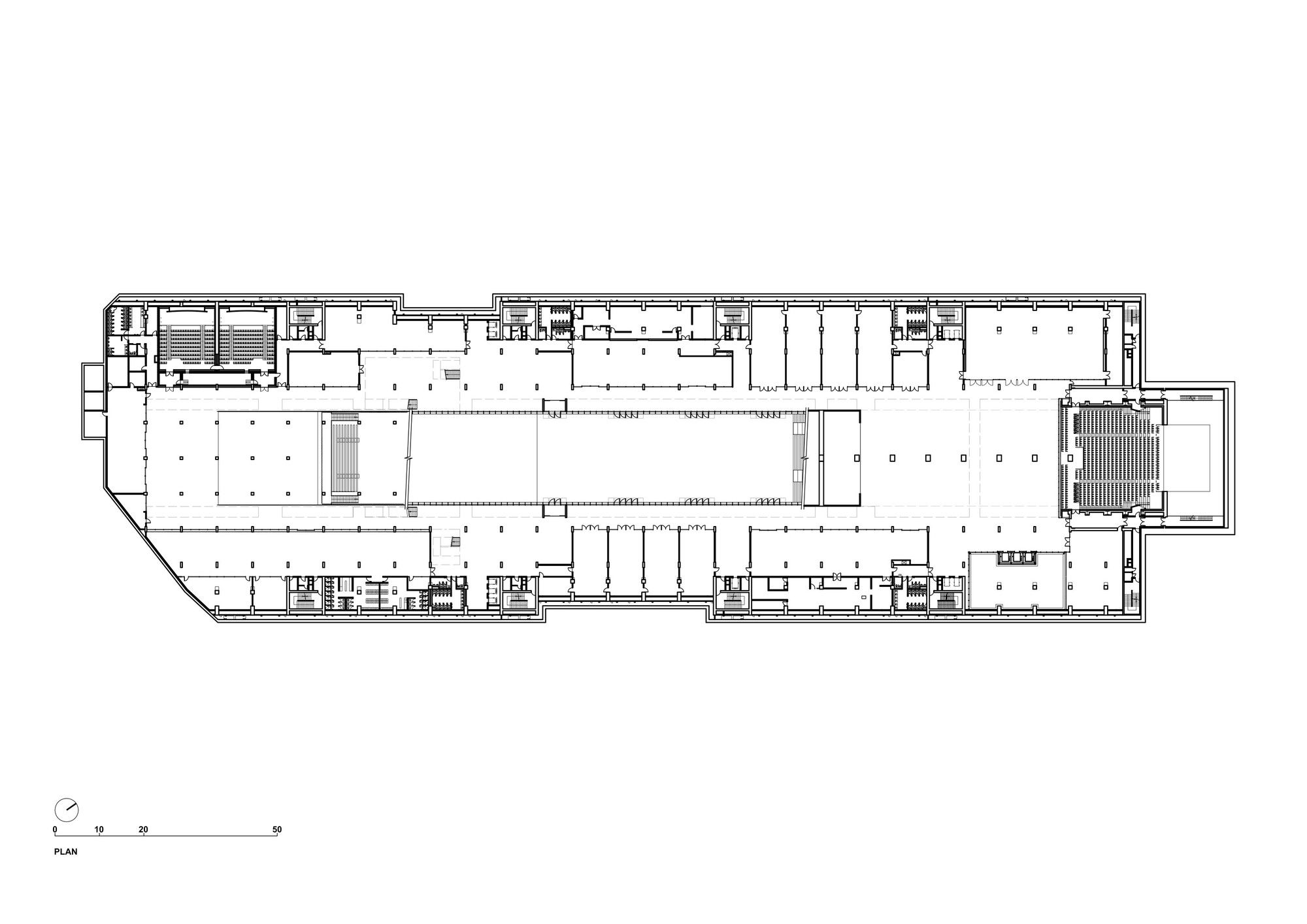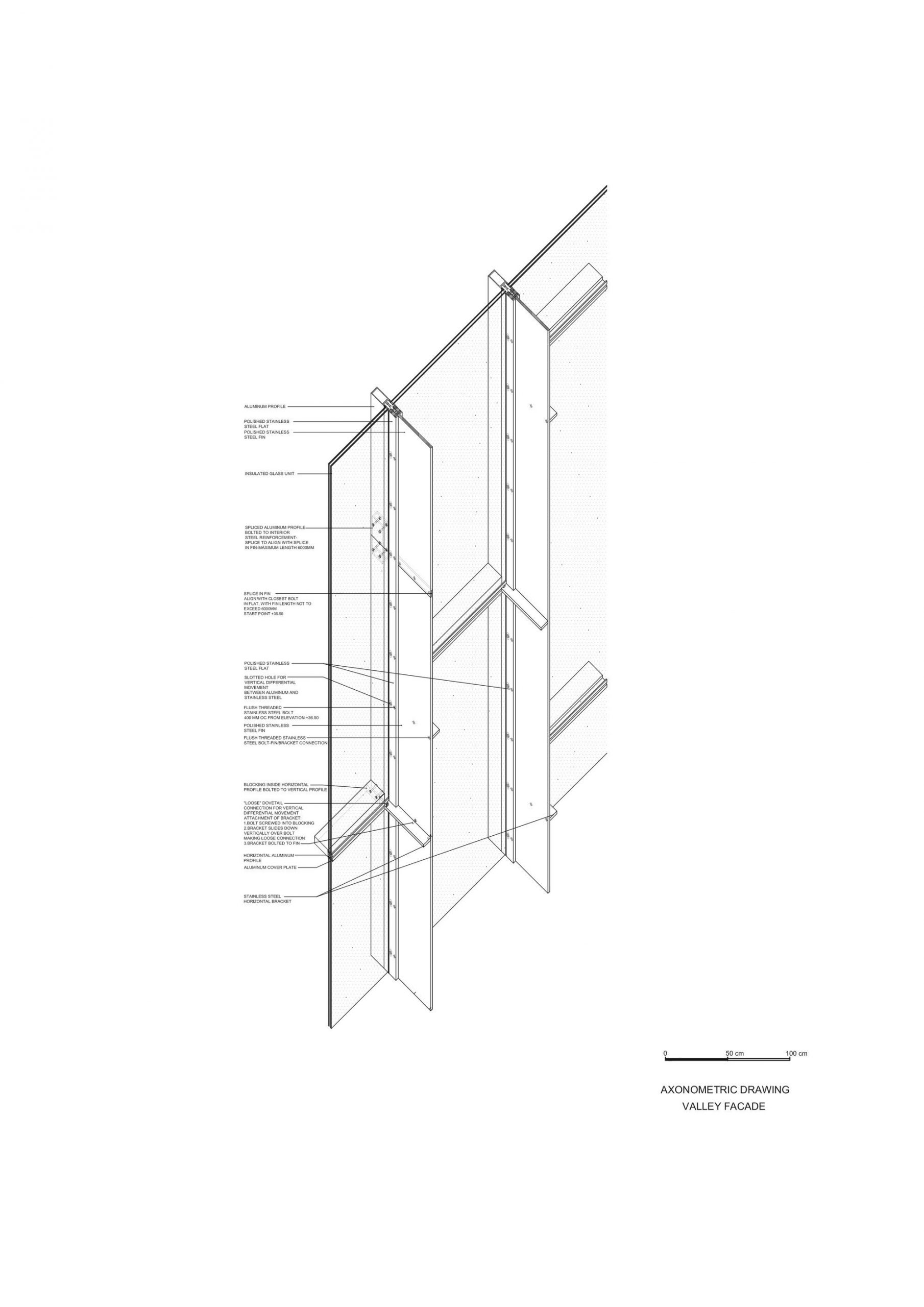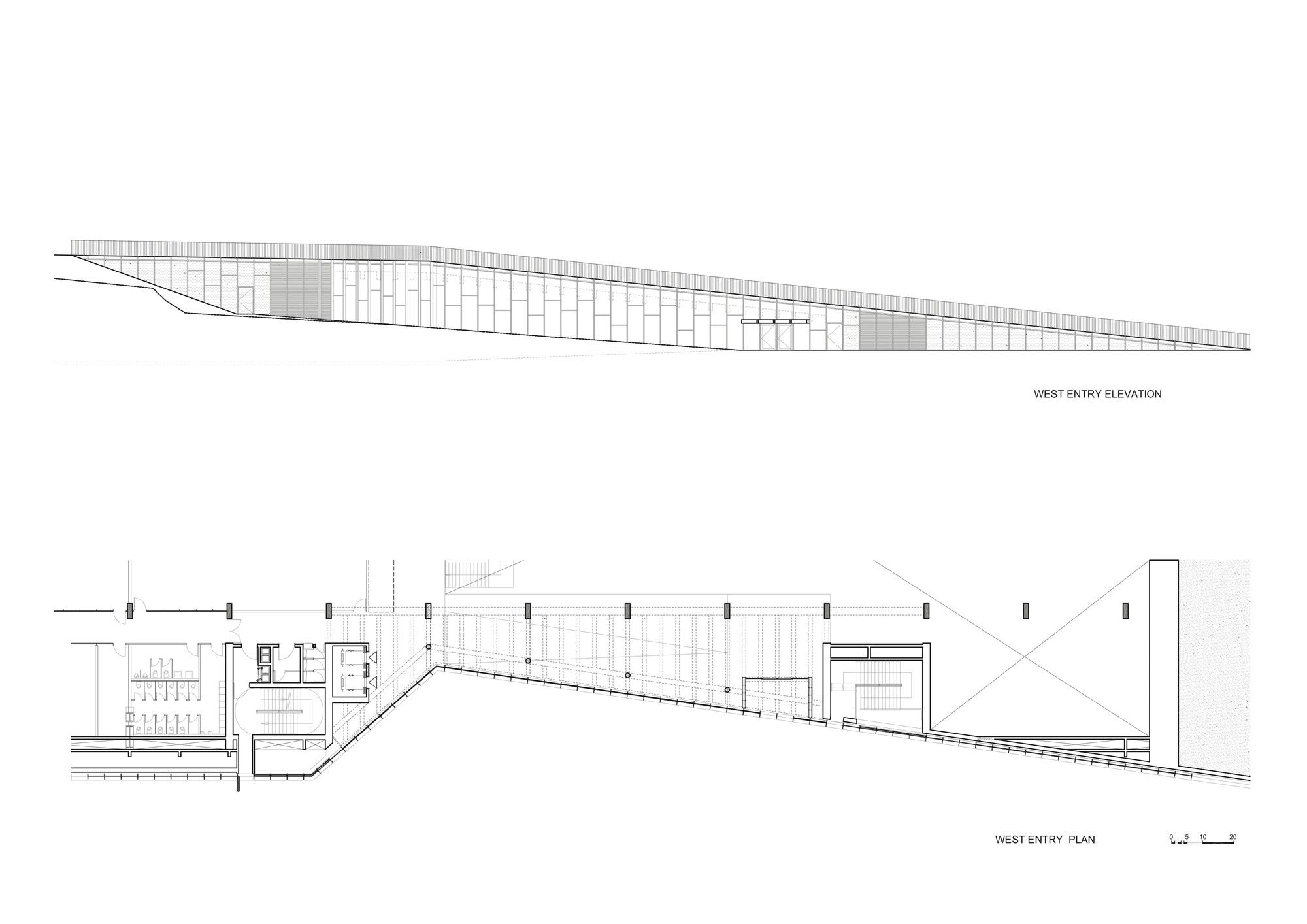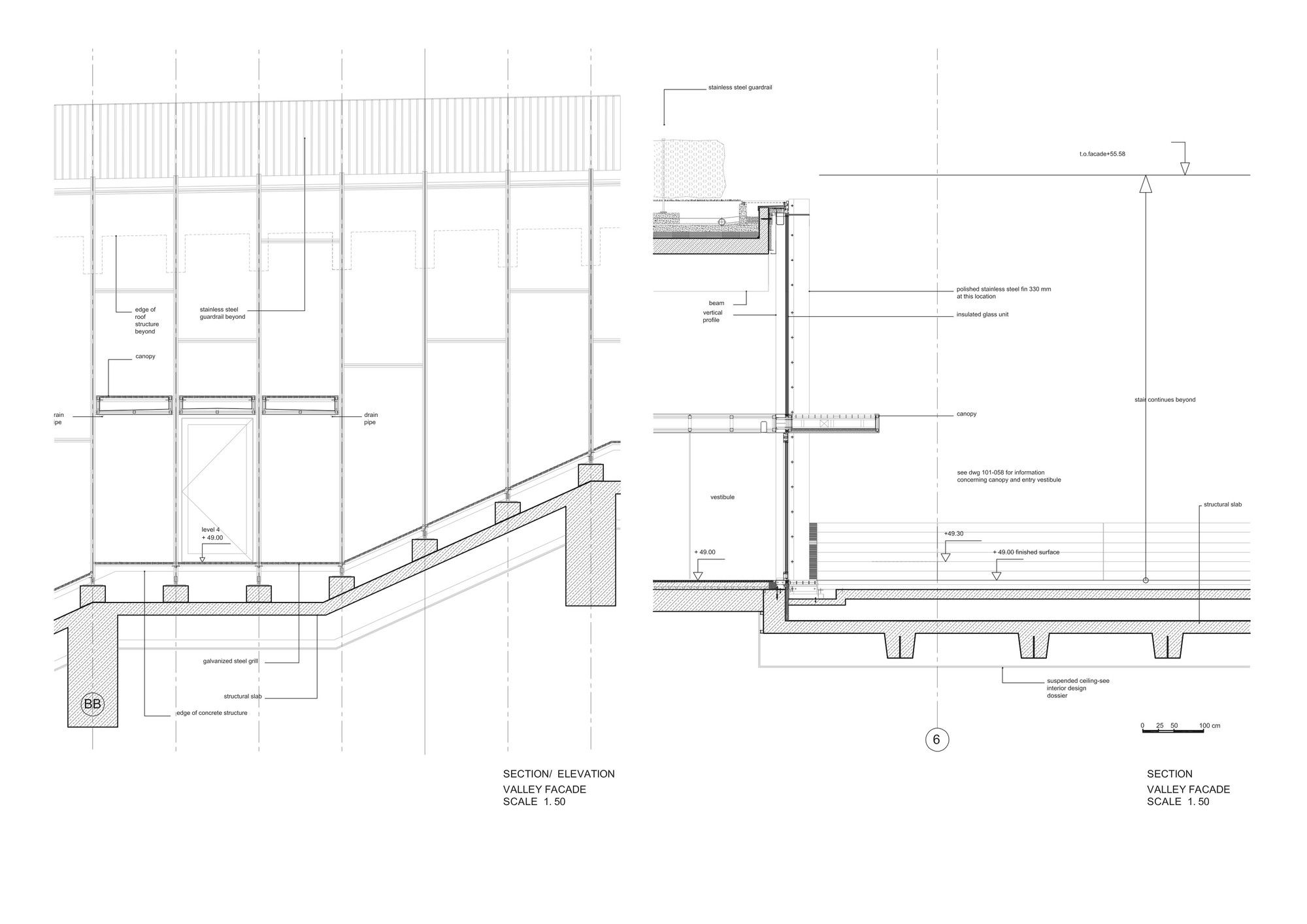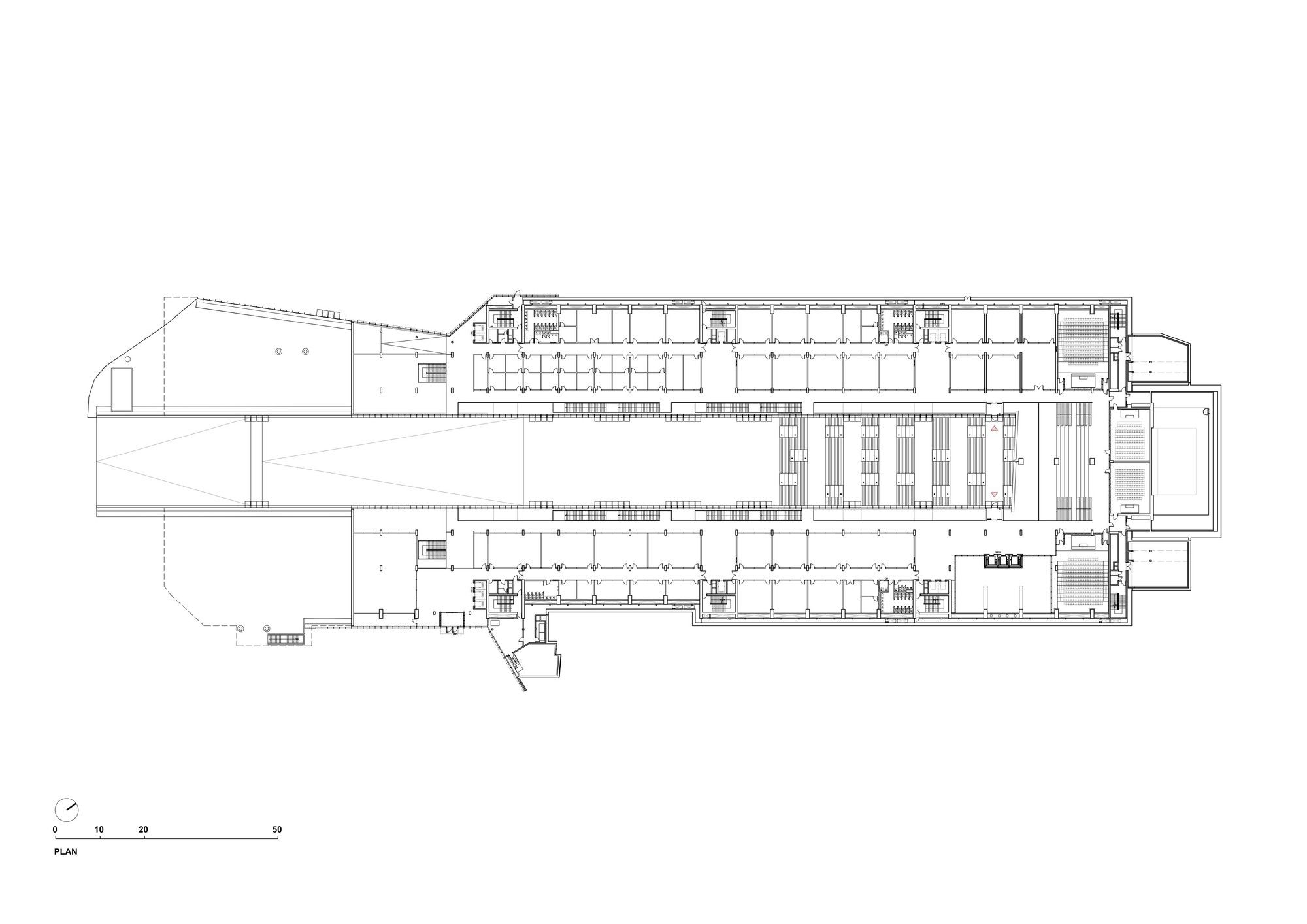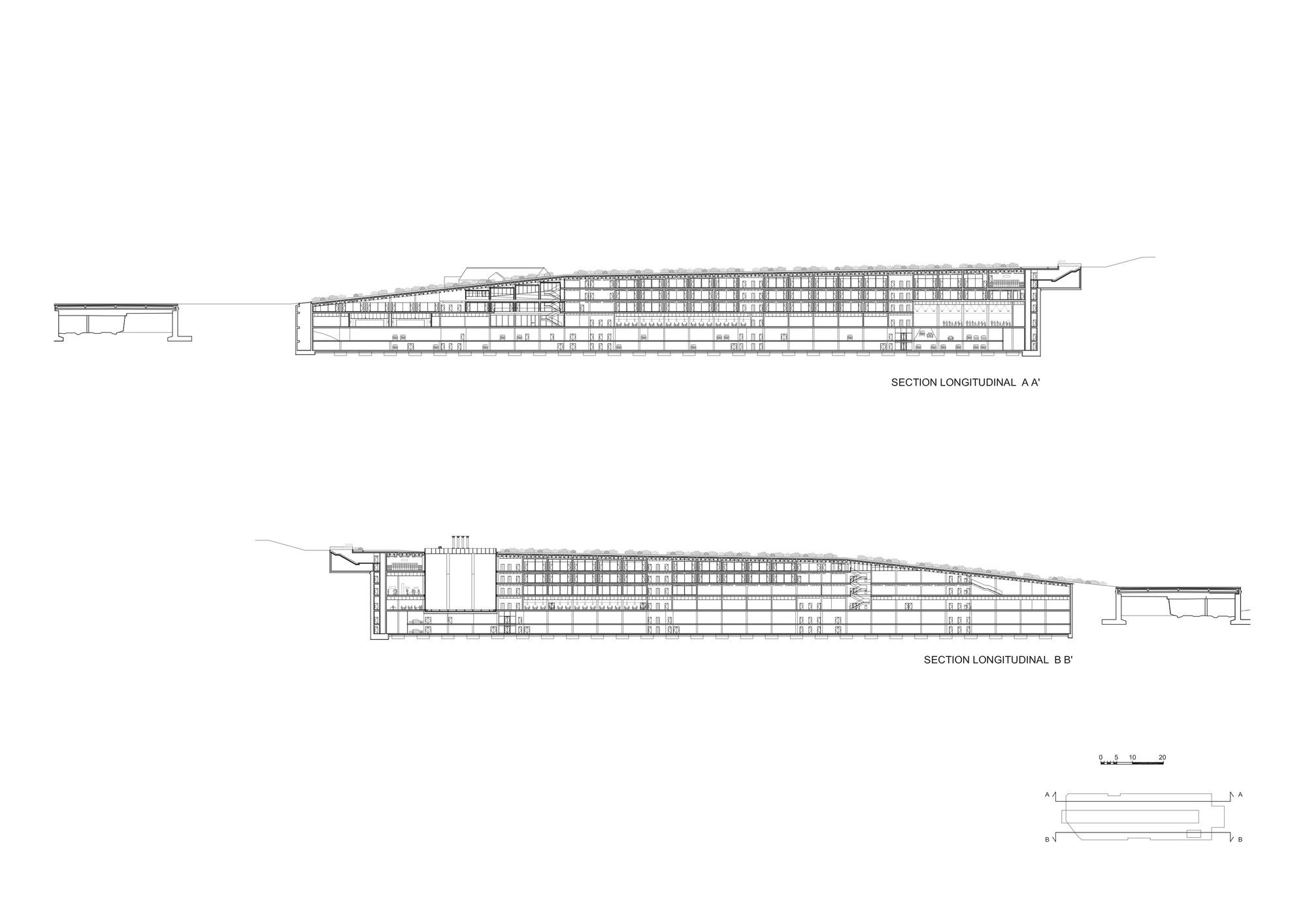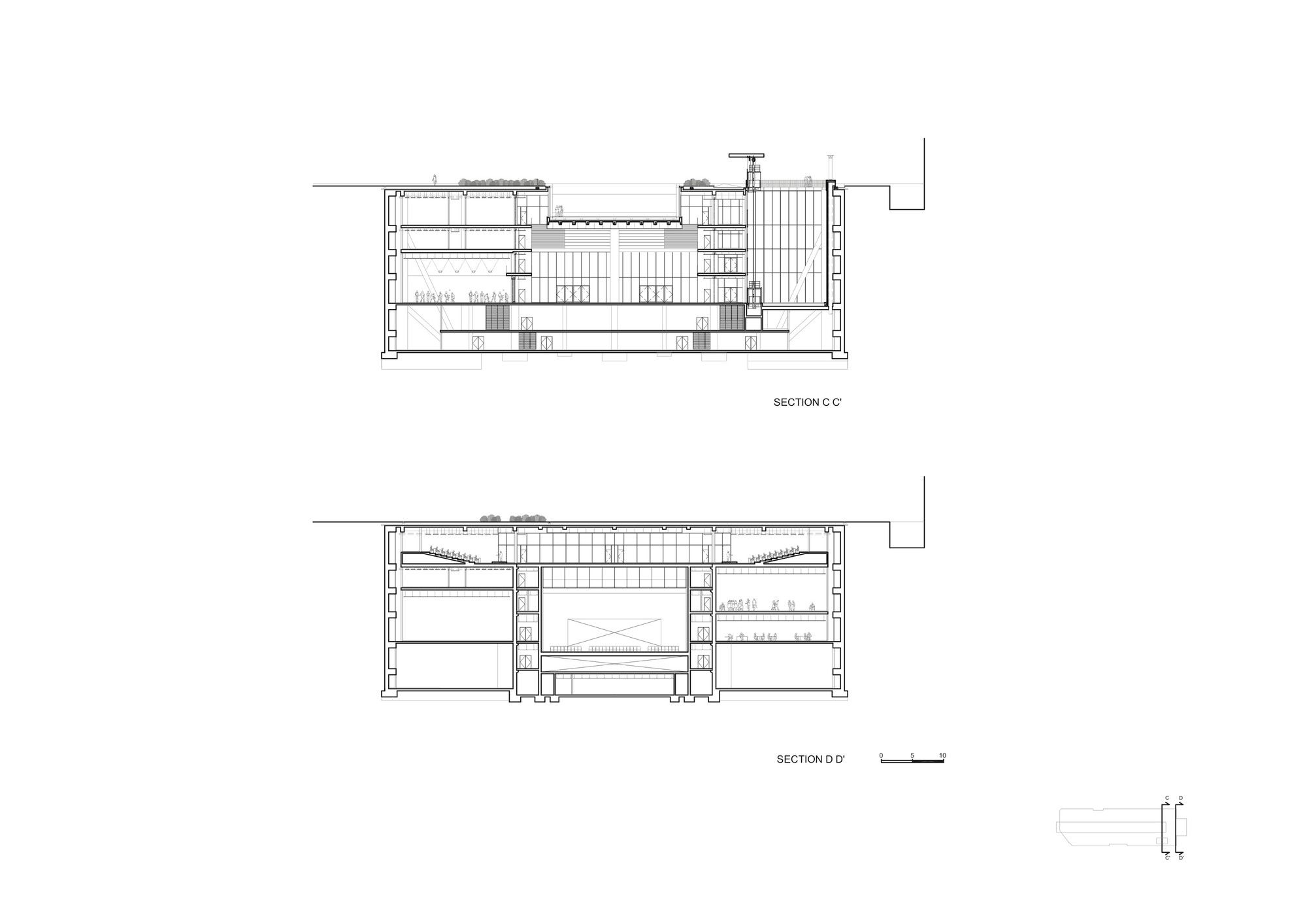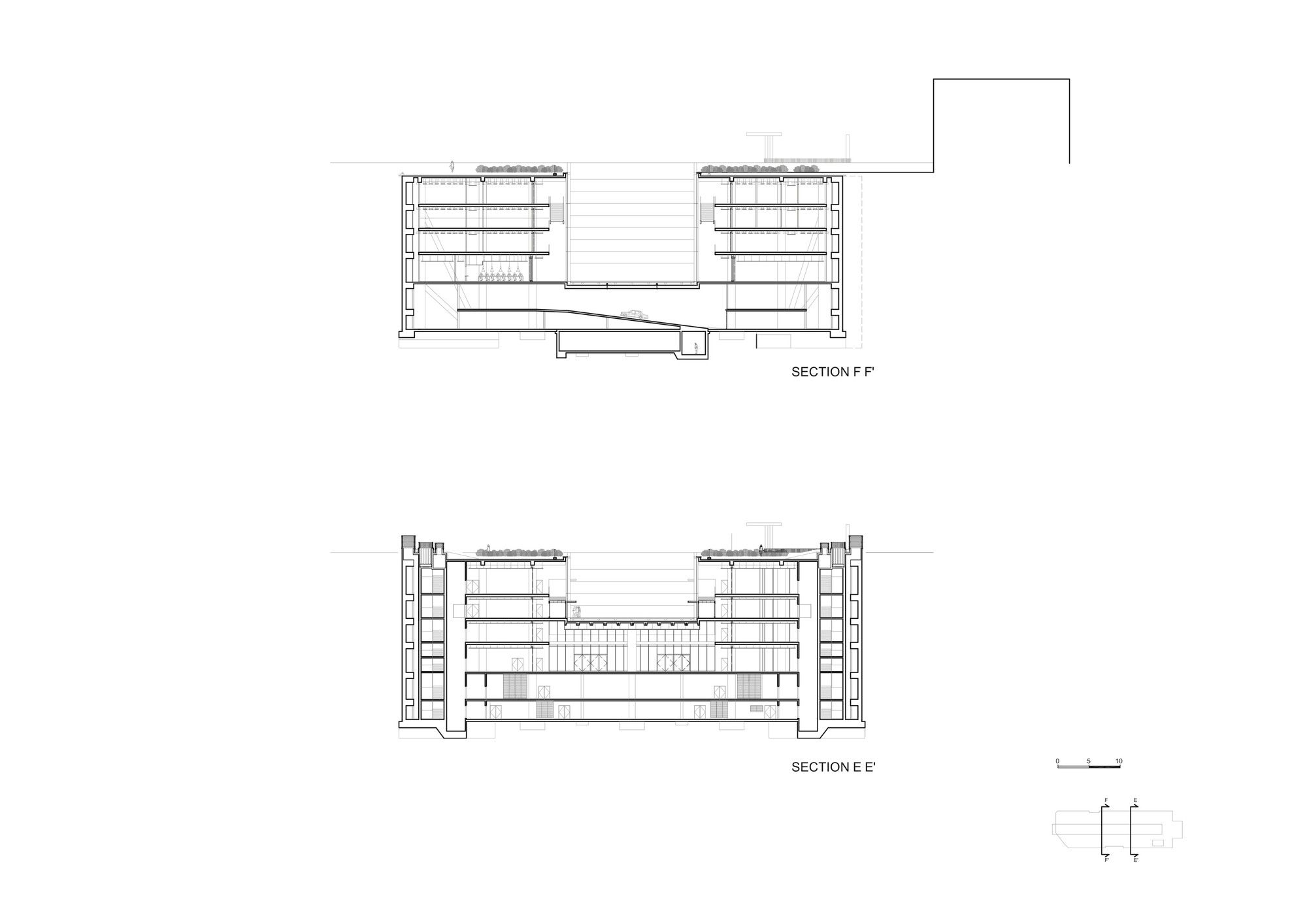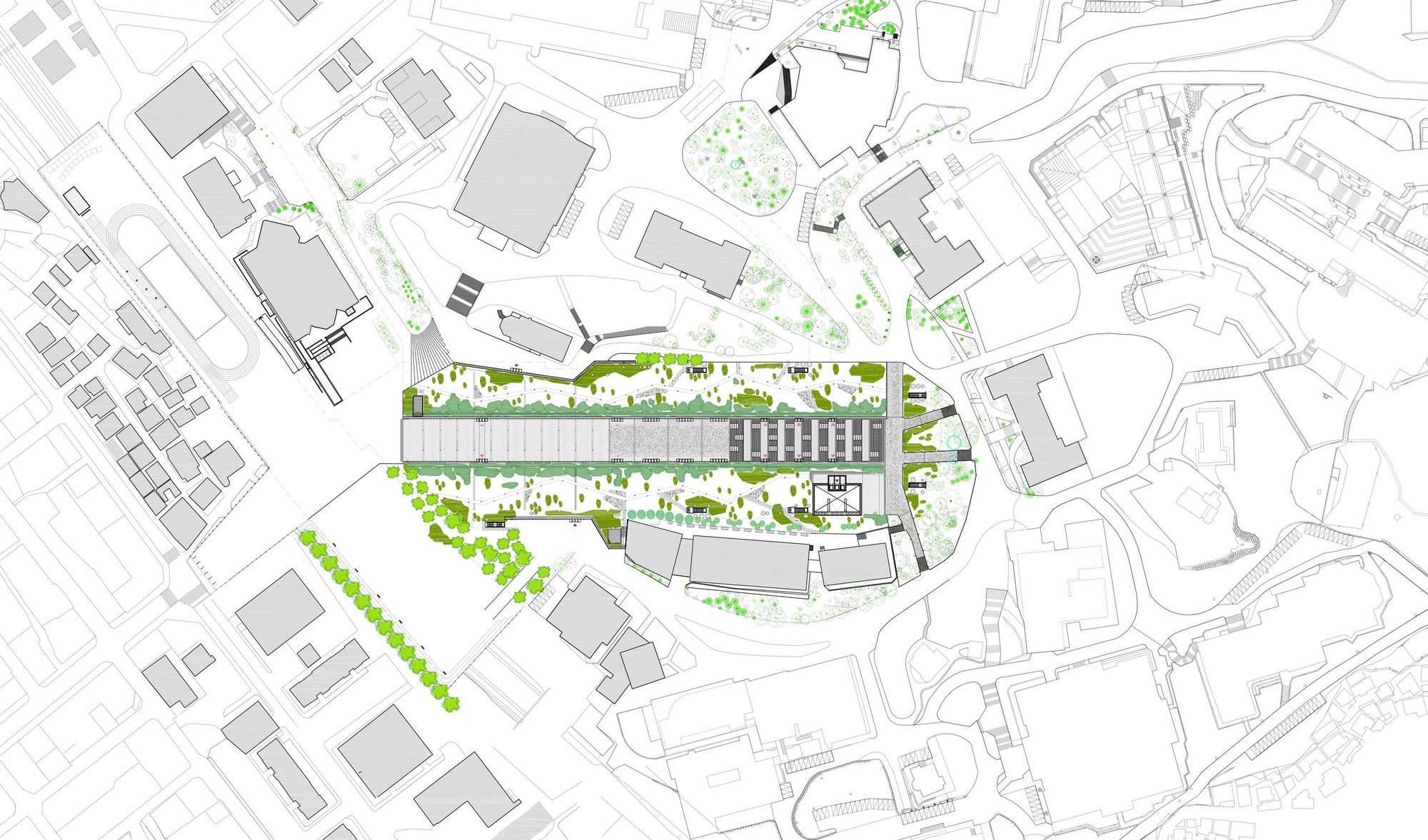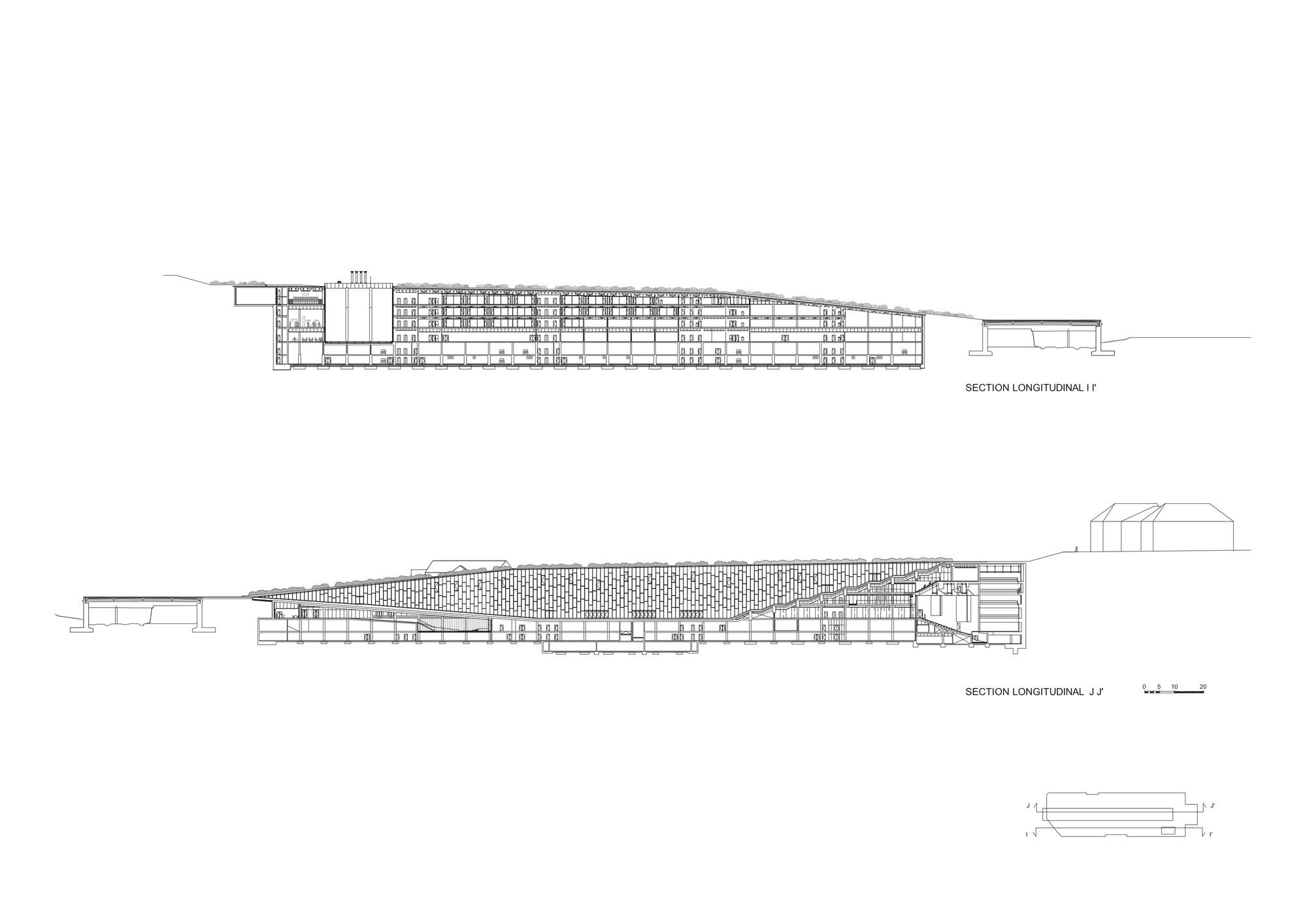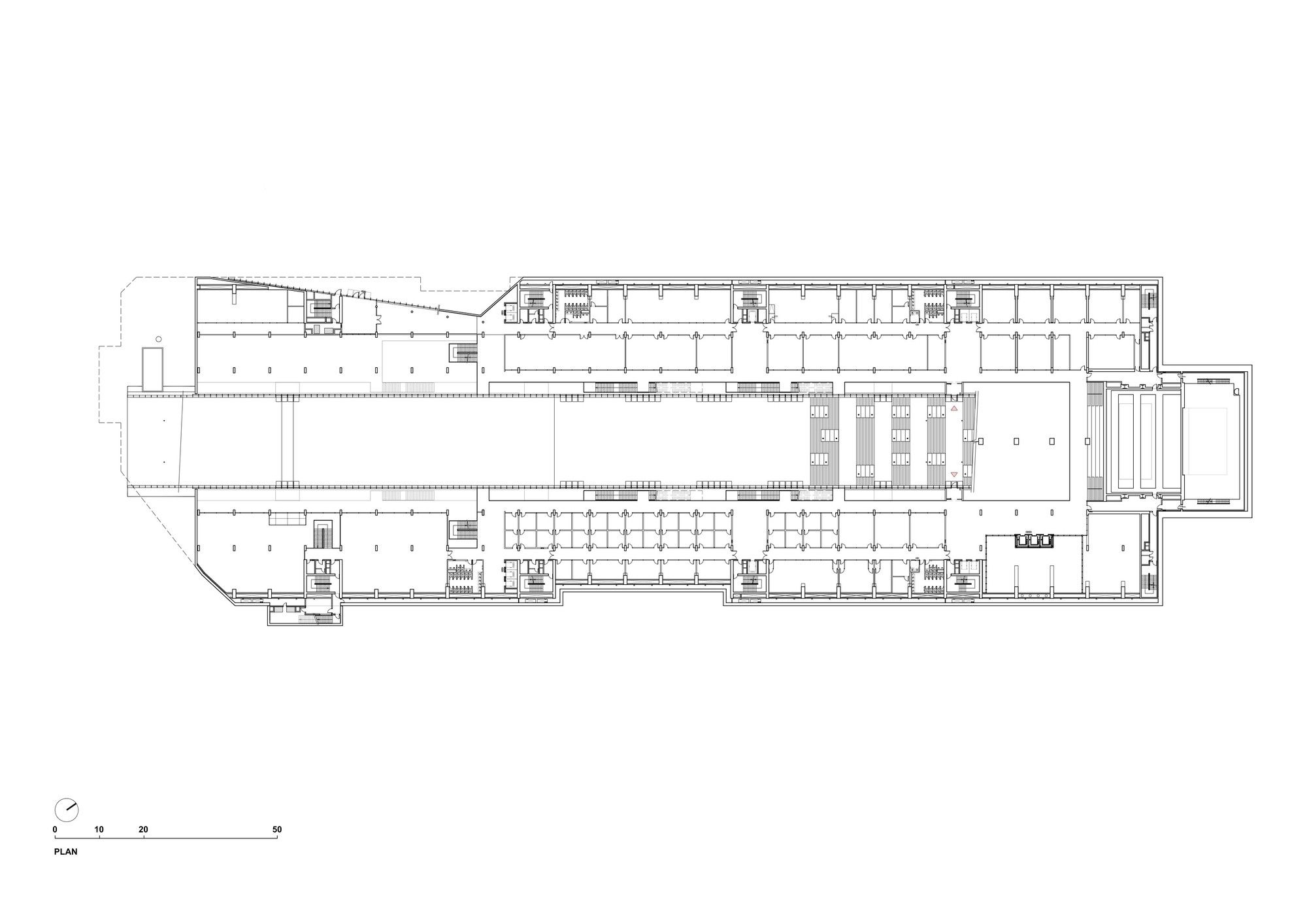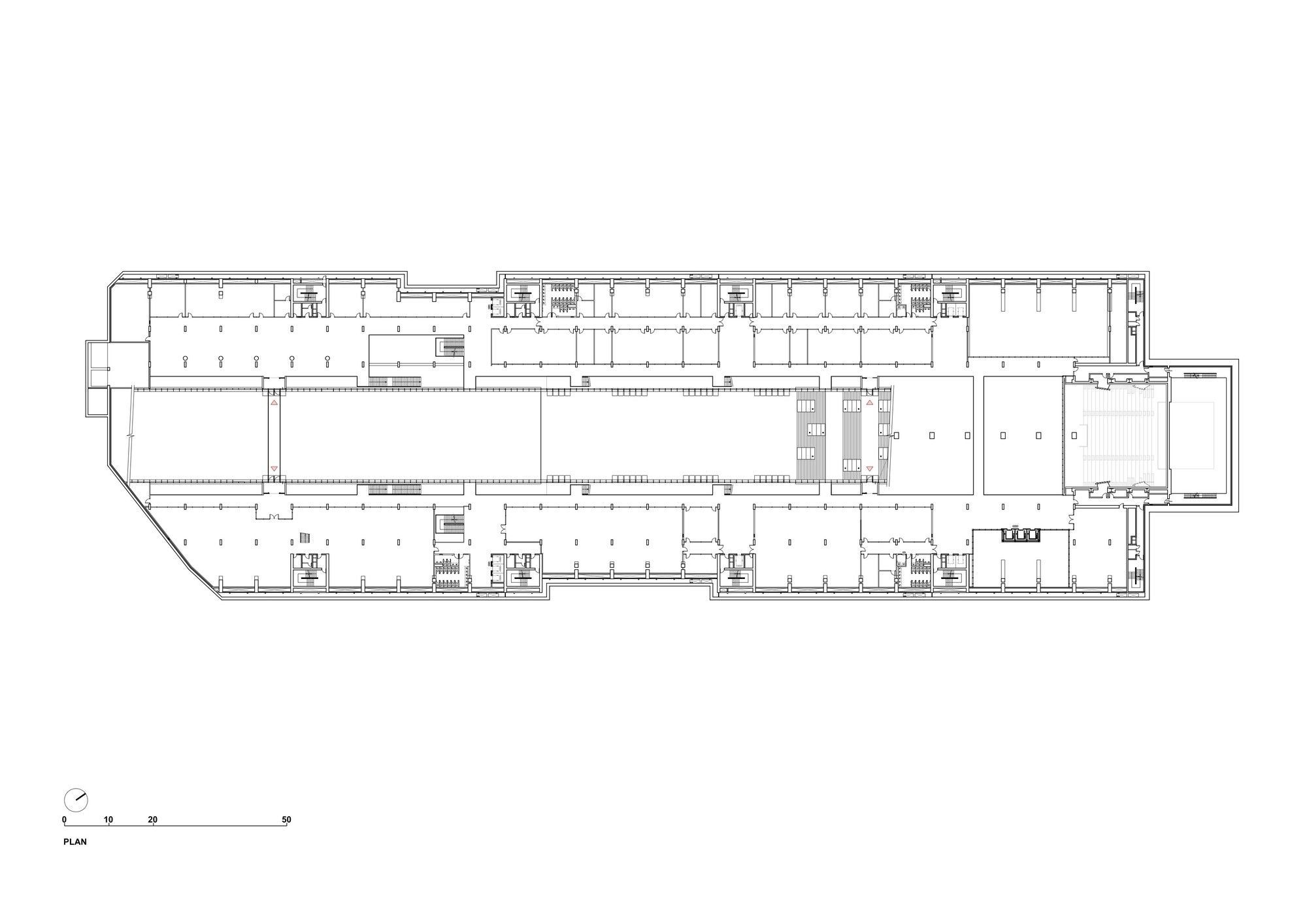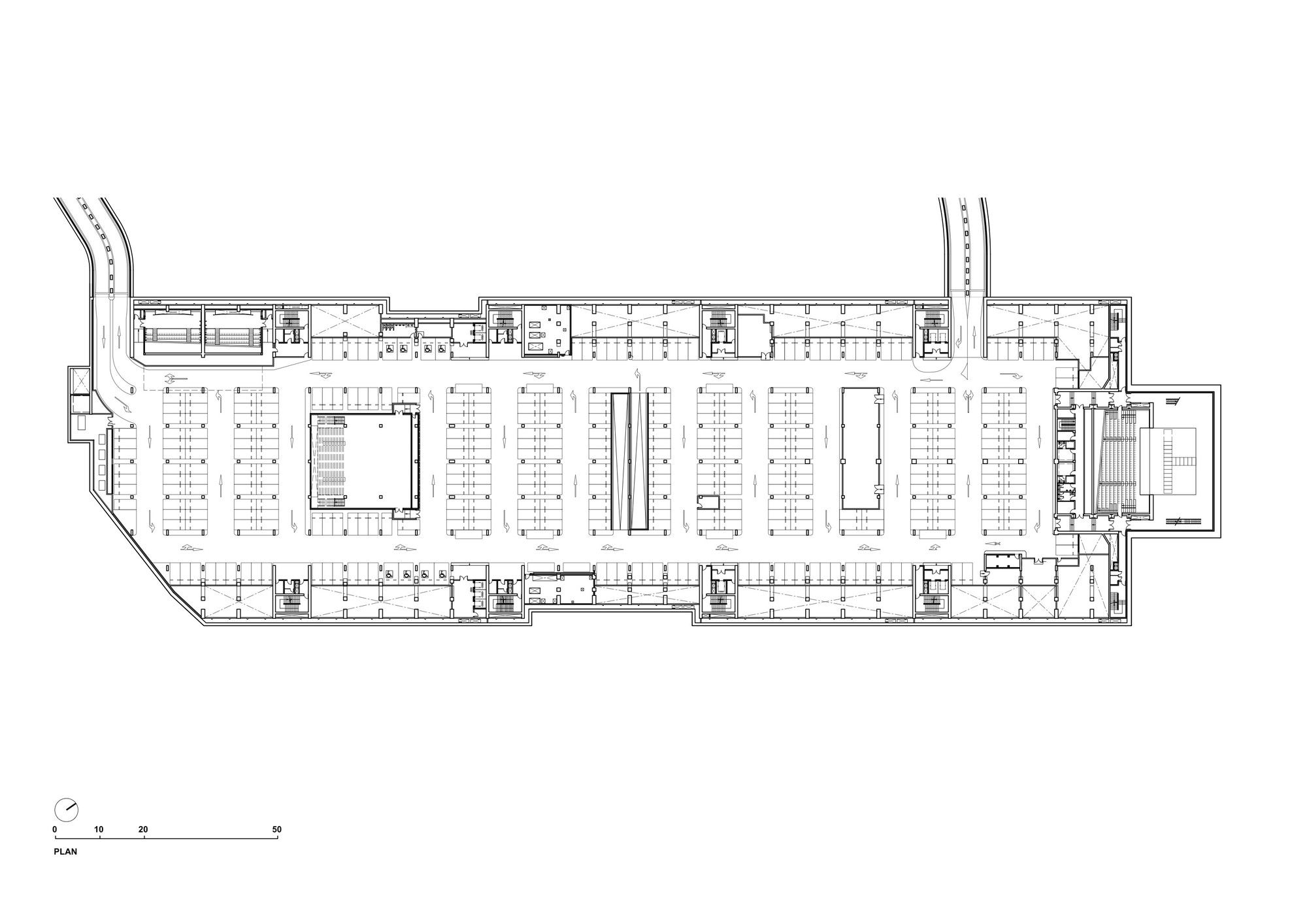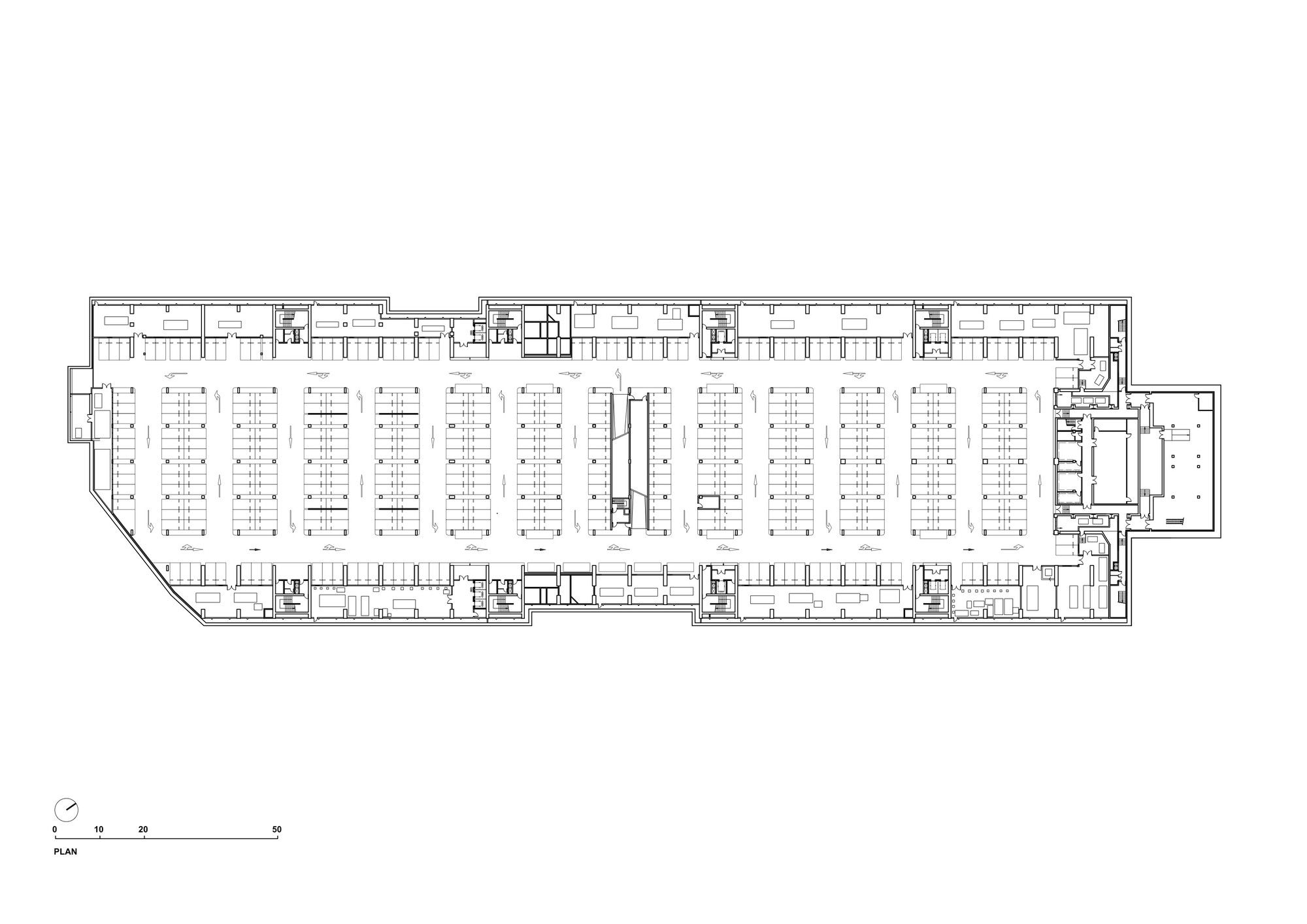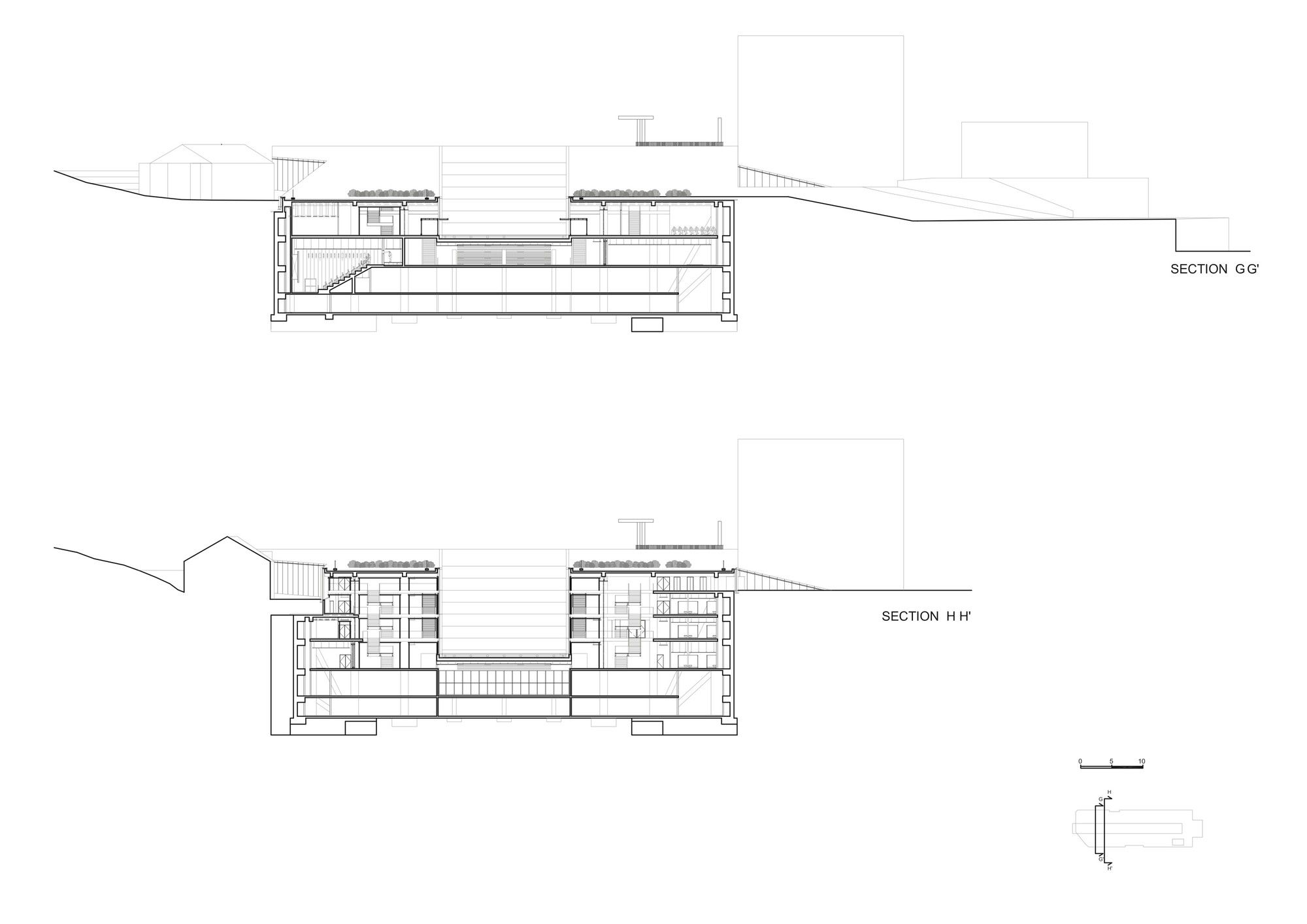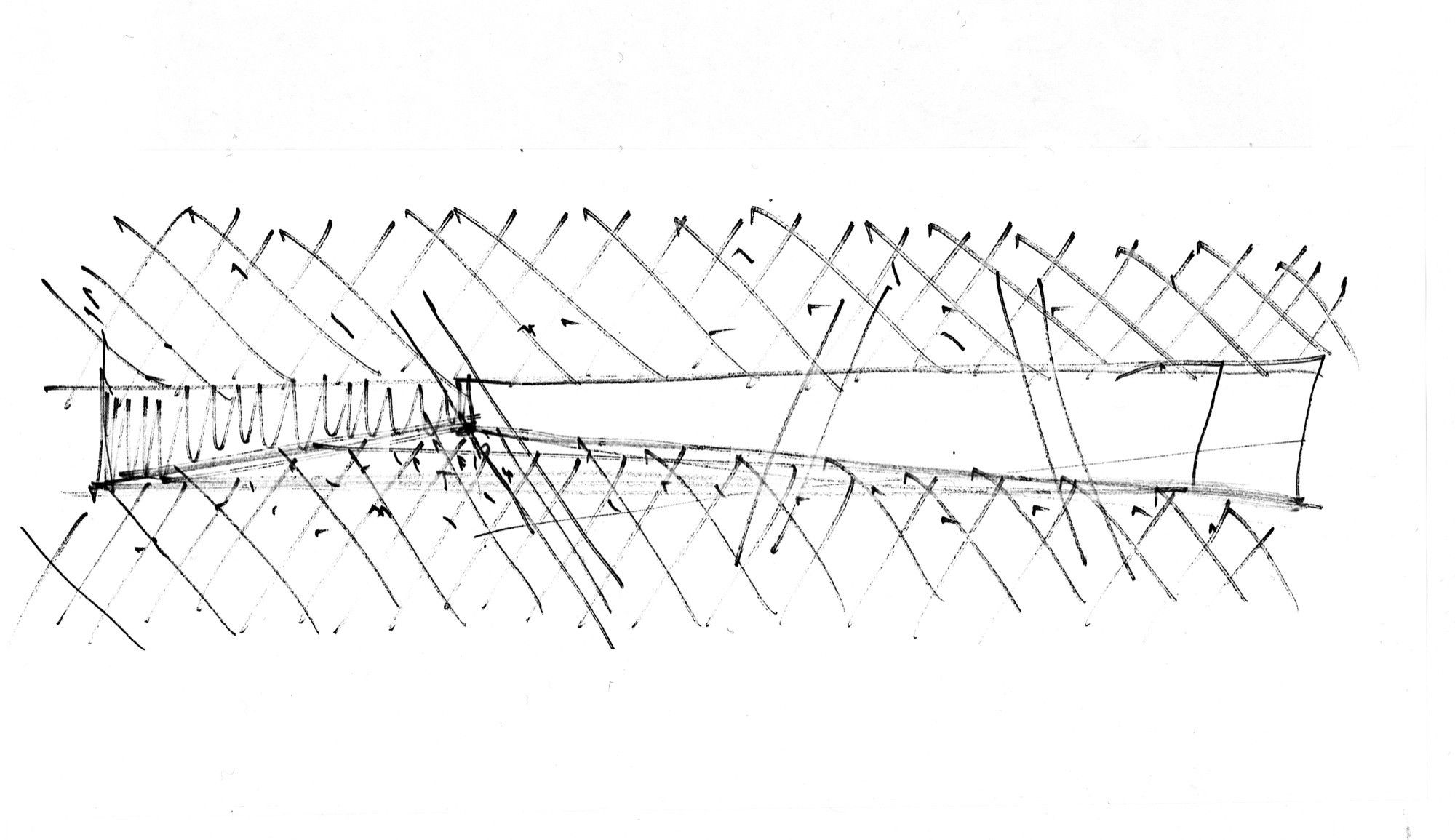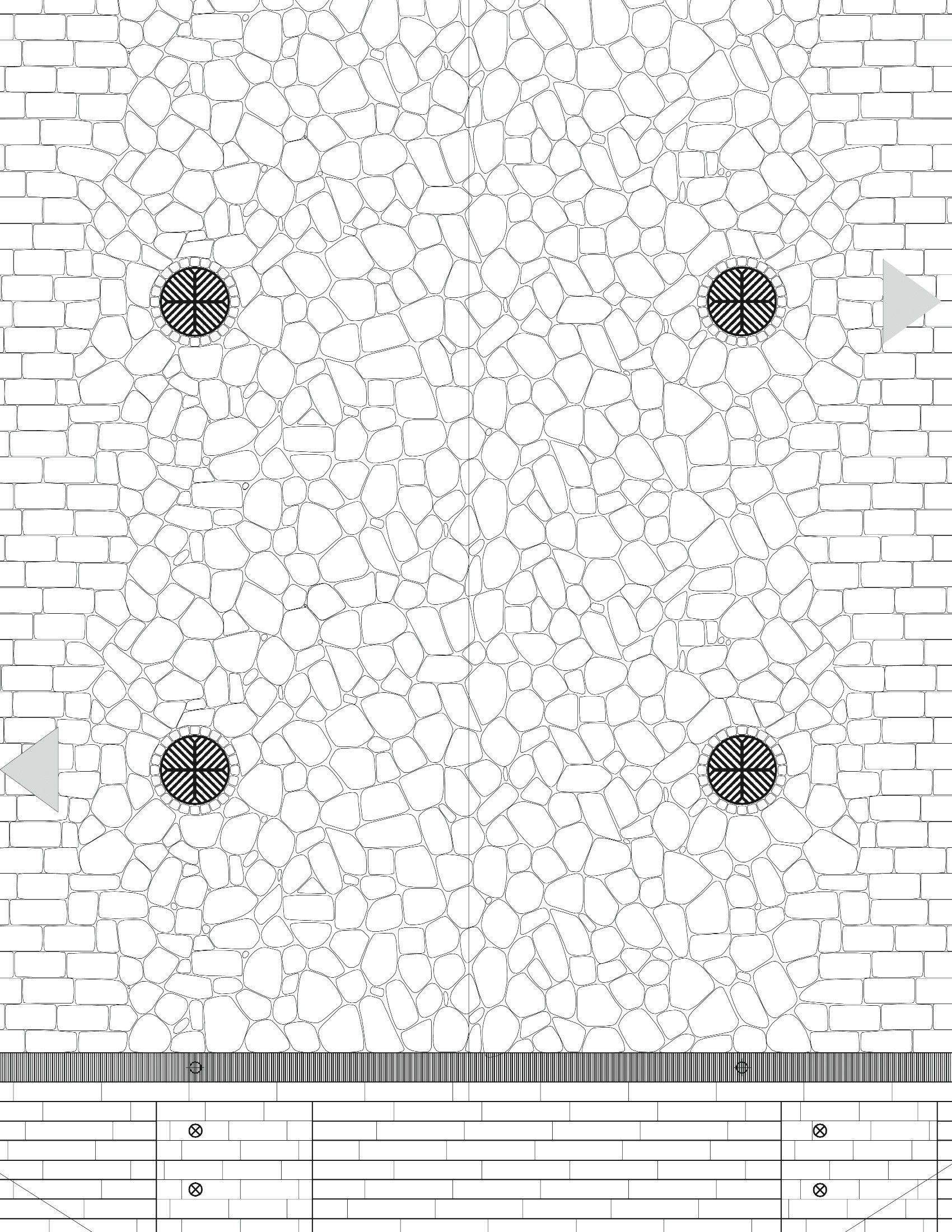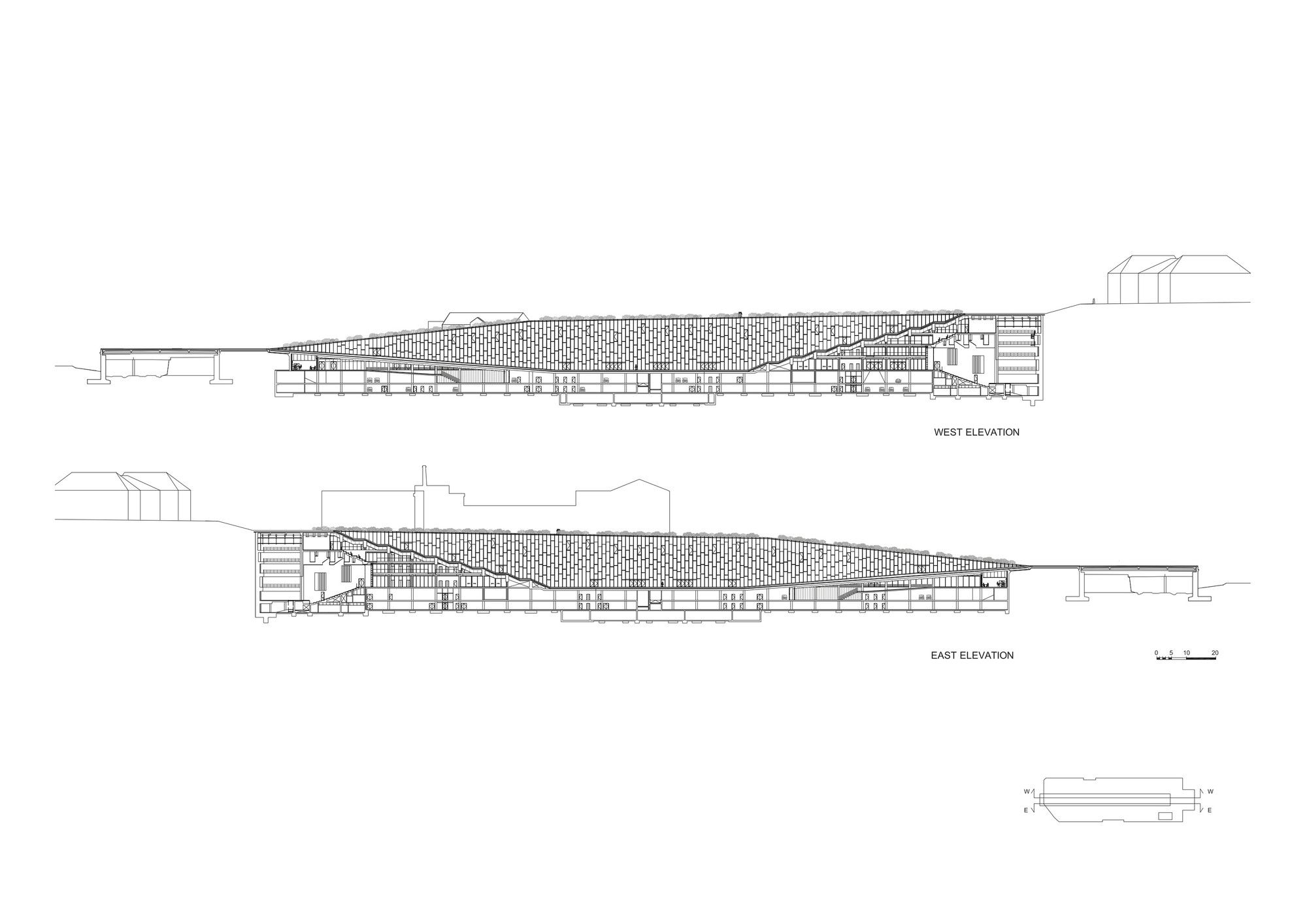Ewha Womans University
The complexity of the immediate site through its relationship to the greater campus and the city of Shinchon to the south demands a “larger than site” response, an urban response, a global landscaped solution which weaves together the tissue of the EWHA campus with that of the city. This gesture, the “campus valley”, in combination with the “sports strip”, creates a new topography which impacts the surrounding landscape in a number of ways.
The Sports Strip, like the Valley, is many things at once. It is a new gateway to the Ewha campus, a place for daily sports activities, a grounds for the special yearly festivals and celebrations, and an area which truly brings together the university and the city. It is most importantly a place for all, animated all year long.
Like a horizontal billboard, the sports strip presents the life of the university to the inhabitants of Shinchon, and vice-versa. Once through the sports strip, pedestrian movement and flow through the site is celebrated. A new “Champs Elysées” invites the public into the site carrying students and visitors alike through the campus center northwards, bringing together the different levels of the site.
The pastoral nature of the campus is perhaps its most remarkable quality. It should be permitted to grow outwards, or inwards in this case, covering the campus center with trees, flowers, and grass. The park is re-drawn. An idyllic garden is the result, creating a special place for gathering, conducting informal classes, and simply relaxing. The notion of weaving together the campus is again evident, blurring the distinction between old and new, building and landscape, present and past.
A new seam slices through the topography revealing the interior of the EWHA campus center. A void is formed, a hybrid place, in which a variety of activities can unfold. It is An avenue, gently descending, controlling the flow of traffic, leading to a monumental stair carrying visitors upwards, recalling les Champs Elysees or the Campidiglio in Rome.
• An entry court, from which access to the various departments exist,
• A node, or point on a trajectory to another destination,
• A forum for the exchange of ideas as students gather after class to discuss their views,
• A piazza, with the cafeteria spilling out creating a real “place” to stop and relax,
• An outdoor theatre, as the stair can be used in an amphitheatre like fashion,
• A sculpture garden, where indoor gallery events can push outwards.
It is precisely this flexibility (conceptual and real) which permits the New EWHA campus center to inevitably weave itself into the landscape sometimes a building, sometimes a landscape, sometimes a sculpture.
Project Info
Architects: Dominique Perrault Architecture
Location: Seoul, South Korea
Partners: Baum Architects, Seoul
Consultant: Jeon and Lee Partners, Seoul (Structural Engineer), HIMEC, Seoul (Mechanical Engineer), CG E&C, Seoul (Civil Engineer), CnK Associates, Seoul (Landscape)
Area: 70000.0 sqm
Year: 2008
Type: Educational
Photographs: André Morin
photograph by © André Morin
photograph by © André Morin
photograph by © André Morin
photograph by © André Morin
photograph by © André Morin
photograph by © André Morin
photograph by © André Morin
photograph by © André Morin
photograph by © André Morin
photograph by © André Morin
photograph by © André Morin
photograph by © André Morin
photograph by © André Morin
photograph by © André Morin
photograph by © André Morin
photograph by © André Morin
photograph by © André Morin
photograph by © André Morin
photograph by © André Morin
photograph by © André Morin
photograph by © André Morin
photograph by © André Morin
photograph by © André Morin
photograph by © André Morin
photograph by © André Morin
photograph by © André Morin
photograph by © André Morin
photograph by © André Morin
photograph by © André Morin
photograph by © André Morin
photograph by © André Morin
photograph by © André Morin
photograph by © André Morin
photograph by © André Morinphotograph by © André Morin
photograph by © André Morin
section 06
section 07
plan 03
detail
section 08
detail 04
plan 07
section 01
section 02
section 03
plan 06
section 05
plan 01
plan 02
plan 04
plan 05
section 04
diagram
detail 02
detail 03
section 09


